D. H. Lawrence on Men & Women
Derek HAWTHORNE
Ex: http://www.counter-currents.com/
1. Love and Strife
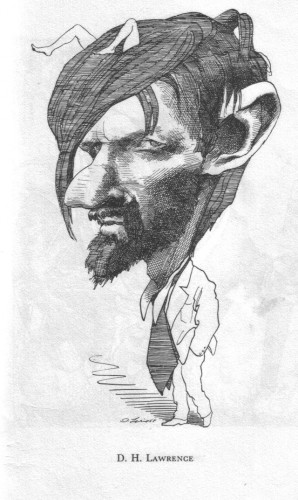 In a 1913 letter D. H. Lawrence writes that “it is the problem of to-day, the establishment of a new relation, or the readjustment of the old one, between men and women.” Lawrence’s views about relations between the sexes, and about sex differences are perhaps his most controversial – and they have frequently been misrepresented. But before we delve into those views, let us ask why it should be the case that establishing a new relation between men and women is “the problem of to-day.” The reason is fairly obvious. The species divides itself into male and female, reproduces itself thereby, and the overwhelming majority of human beings seek their fulfillment in a relationship to the opposite sex. If relations between the sexes have somehow been crippled—as Lawrence believes they have been—then this is a catastrophe. It is hard to imagine a greater, more pressing problem.
In a 1913 letter D. H. Lawrence writes that “it is the problem of to-day, the establishment of a new relation, or the readjustment of the old one, between men and women.” Lawrence’s views about relations between the sexes, and about sex differences are perhaps his most controversial – and they have frequently been misrepresented. But before we delve into those views, let us ask why it should be the case that establishing a new relation between men and women is “the problem of to-day.” The reason is fairly obvious. The species divides itself into male and female, reproduces itself thereby, and the overwhelming majority of human beings seek their fulfillment in a relationship to the opposite sex. If relations between the sexes have somehow been crippled—as Lawrence believes they have been—then this is a catastrophe. It is hard to imagine a greater, more pressing problem.
Lawrence came to relations with women bearing serious doubts about his own manhood, and with the conviction that his nature was fundamentally androgynous. Throughout his life, but especially as a boy, it was easier for him to relate to women and to form close bonds with them. Thus, when Lawrence discusses the nature of woman he draws not only upon his experiences with women, but also upon his understanding of his own nature. One of the questions we must examine is whether, in doing so, Lawrence was led astray. After all, Lawrence eventually came to repudiate the idea of any sort of fundamental androgyny and to claim that men and women are radically different. In Fantasia of the Unconscious he writes, “We are all wrong when we say there is no vital difference between the sexes.” Lawrence wrote this in 1921 intending it to be provocative, but it is surely much more controversial in today’s world, where it has become a dogma in some circles to insist that sex differences (now called “gender differences”) are “socially constructed.” Lawrence continues: “There is every difference. Every bit, every cell in a boy is male, every cell is female in a woman, and must remain so. Women can never feel or know as men do. And in the reverse, men can never feel and know, dynamically, as women do.”
Lawrence saw relations between the sexes as essentially a war. He tells us in his essay “Love” that all love between men and women is “dual, a love which is the motion of melting, fusing together into oneness, and a love which is the intense, frictional, and sensual gratification of being burnt down, burnt into separate clarity of being, unthinkable otherness and separateness.” The love between men and women is a fusing—or a will to fusing—but one that never fully takes place because the relation is also fundamentally frictional. Again and again Lawrence emphasizes the idea that men and women are metaphysically different. In other words, they have different, and even opposed ways of being in the world. They are not just anatomically different; they have different ways of thinking and feeling, and achieve satisfaction and fulfillment in life through different means.
Lawrence’s view of the difference between the sexes can be fruitfully compared to the Chinese theory of yin and yang. These concepts are of great antiquity, but the way in which they are generally understood today is the product of an ambitious intellectual synthesis that took place under the early Han dynasty (207 B.C.–9 A.D.). According to this philosophy, the universe is shot through with an ultimate principle or power known as the Tao. However, the Tao divides itself into two opposing principles, yin and yang. These oppose yet complement each other. Yang manifests itself in maleness, hardness, harshness, dominance, heat, light, and the sun, amongst other things. Yin manifests itself in femaleness, softness, gentleness, yielding, cold, darkness, the moon, etc.
Contrary to the impression these lists might give, however, yang is not regarded as “superior” to yin; hardness is not superior to softness, nor is dominance superior to yielding. Each requires the other and cannot exist without the other. In certain situations a yang approach or condition is to be preferred, in others a yin approach. On occasion, yang may predominate to the point where it becomes harmful, and it must be counterbalanced by yin, or vice versa. (These principles are of central importance, for example, in traditional Chinese medicine.) The Tao Te Ching, a work written by a man chiefly for men extols the virtues of yin, and continually advises one to choose yin ways over yang. Lao-Tzu tells us over and over that it is “best to be like water,” that “those who control, fail. Those who grasp, lose,” and that “soft and weak overcome stiff and strong.”
Like the Taoists, Lawrence regards maleness and femaleness as opposed, yet complementary. It is not the case that the male, or the male way of being, is superior to the female, or vice versa. In a sense the sexes are equal, yet equality does not mean sameness. The error of male chauvinism is in thinking that one way, the male way, is superior; that dominance and hardness are just “obviously” superior to their opposites.
Yet the same error is committed by some who call themselves feminists. Tacitly, they assume that the male or yang characteristics are superior, and enjoin women to seek fulfillment in life through cultivating those traits in themselves. To those who might wonder whether such a program is possible, to say nothing of desirable, the theory of the “social construction of gender” is today being offered as support. According to this view, the only inherent differences between men and women are anatomical, and all of the intellectual, emotional, and behavioral characteristics attributed to the sexes throughout history have actually been the product of culture and environment. (And so “yin and yang,” according to this view, is really a rather naïve philosophy which confuses nurture with nature.) Clearly, Lawrence would reject this theory. In doing so, he is on very solid ground.
It would, of course, be foolish not to recognize that some “masculine” and “feminine” traits are culturally conditioned. An obvious example would be the prevailing view in American culture that a truly “masculine” man is unable, without the help of women or gay men, to color-coordinate his wardrobe. However, when one sees certain traits in men and women displaying themselves consistently in all cultures and throughout all of human history it makes sense to speak of masculine and feminine natures. It is plausible to argue that a trait is culturally conditioned only if it shows up in some cultures but not in others. Unfortunately, the “social construction of gender” thesis has achieved the status of a dogma in academic circles. And, in truth, ultimately it has to be asserted as dogma since believing in it requires that we ignore the evidence of human history, profound philosophies such as Taoism, and most of the scientific research into sex differences that has taken place over the last one hundred years.
I said earlier that Lawrence believes men and women to be “metaphysically different,” and in his essay “A Study of Thomas Hardy” he does indeed write as if he believes they actually see the world with a different metaphysics in mind:
It were a male conception to see God with a manifold Being, even though He be One God. For man is ever keenly aware of the multiplicity of things, and their diversity. But woman, issuing from the other end of infinity, coming forth as the flesh, manifest in sensation, is obsessed by the oneness of things, the One Being, undifferentiated. Man, on the other hand, coming forth as the desire to single out one thing from another, to reduce each thing to its intrinsic self by process of elimination, cannot but be possessed by the infinite diversity and contrariety in life, by a passionate sense of isolation, and a poignant yearning to be at one.
So, men seek or are preoccupied with multiplicity, and women with unity. What are we to make of such a bizarre claim? First of all, it seems to run counter to the Greek tradition, especially that of the Pythagoreans, which tended to identify the One with the masculine, and the Many with the feminine. However, if one looks to Empedocles, a pre-Socratic philosopher Lawrence was particularly keen on, one finds a different story. Empedocles posits two fundamental forces which are responsible for all change in the universe: Love and Strife. Love, at the purely physical level, is a force of attraction. It draws things together, and without the intervention of Strife it would result in a monistic universe in which only one being existed. Strife breaks up and divides. It is a force of repulsion and separation. Now, Empedocles seems to identify Love with Aphrodite, and we may infer, though he does not say so, that Strife is Ares. In other words, he identifies his two forces with the archetypal female and male. This can offer us a clue as to what Lawrence is up to.
In Lawrence’s view, it is the female who wants to draw things, especially people, together. It is the female who yearns to heal divisions, to break down barriers. “Coming forth as the flesh, manifest in sensation” she seeks to overcome separateness through feeling, primarily through love. In the family situation, it is the female who tries to unite and overcome discord through love, whereas it is the male, typically, who frustrates this through the insistence on rules and distinctions. The ideal of universal love and an end to strife and division is fundamentally feminine—one which men, throughout history, have continually frustrated. It is characteristic of men to make war, and characteristic of women, no matter what cause or principle is involved, to object and to call for peace and unity.
Now the male, as Lawrence puts it, suffers from a sense of isolation, and a “yearning to be one.” He yearns for oneness, in fact, as the male yearns for the female. Yet his entire being disposes him to see the world in terms of its distinctness, and, indeed, to make a world rife with distinctions. Lawrence implies that polytheism is a “male” religion, and monotheism a “female” one. It is easy to see the logic involved in this. Polytheism sees the divine being that permeates the world as many because the world is itself many. Further, societies with polytheistic religions have always been keenly aware of ethnic and social differences, differences within the society (as in the Indian caste system), and between societies. Monotheism, on the other hand, tends toward universalism. Christianity especially, however it has actually been practiced, declares all men equal in the sight of God and calls for peace and unity in the world. (Lawrence, as we shall see later on, does indeed regard Christianity as a “feminine” religion, and blames it, in part, for feminizing Western men.)
This fundamental, metaphysical difference has the consequence that men and women do, in a real sense, live in different worlds. But perhaps such a formulation reflects a male bias towards differentiation. It is equally correct to say, in a more “feminine” formulation, that it is the same world seen in two, complementary ways. Indeed, it may be the case that it is difficult to see, from a male perspective, how the two sexes and their different ways of thinking and perceiving can achieve a rapprochement. Lawrence believes, of course, that they can live together, and that their opposite tendencies can be harmonized. In this way he is like Heraclitus, Lawrence’s favorite pre-Socratic, when he says “what is opposed brings together; the finest harmony is composed of things at variance, and everything comes to be in accordance with strife.” Heraclitus also tells us that “They do not understand how, though at variance with itself, it [the Logos] agrees with itself. It is a backwards-turning attunement like that of the bow and lyre.” In order to make a lyre or a bow, the two opposite ends of a piece of wood must be bent towards each other, never meeting, but held in tension. Their tension and opposition makes possible beautiful music, in the case of the lyre, and the propulsion of an arrow, in the case of the bow. Both involve a harmony through opposition.
In a 1923 newspaper interview Lawrence is quoted as saying “If men were left to themselves, they would rush off . . . into destruction. But women keep life back at its own center. They pull the men back. Women have enormous passive strength, the strength of inertia.” Here Lawrence uses an image he was very fond of: women are at the center, the hub. This is because they are closer to “the source” than men are.
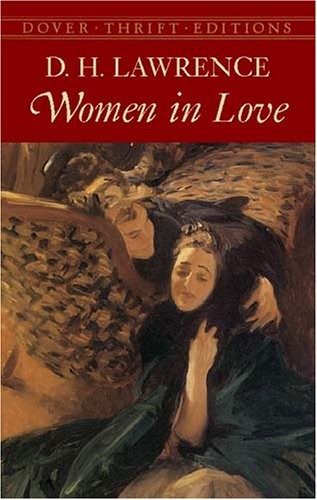 In Fantasia of the Unconscious, Lawrence tells us “The blood-consciousness and the blood-passion is the very source and origin of us. Not that we can stay at the source. Nor even make a goal of the source, as Freud does. The business of living is to travel away from the source. But you must start every single day fresh from the source. You must rise every day afresh out of the dark sea of the blood.” Lawrence believes that men yearn for purposive, creative activity, which involves moving away from the source. However, the energy and inspiration for purposive activity is drawn from the source, and so there is a complementary movement back towards it.
In Fantasia of the Unconscious, Lawrence tells us “The blood-consciousness and the blood-passion is the very source and origin of us. Not that we can stay at the source. Nor even make a goal of the source, as Freud does. The business of living is to travel away from the source. But you must start every single day fresh from the source. You must rise every day afresh out of the dark sea of the blood.” Lawrence believes that men yearn for purposive, creative activity, which involves moving away from the source. However, the energy and inspiration for purposive activity is drawn from the source, and so there is a complementary movement back towards it.
In The Rainbow, Lawrence describes how Tom Brangwen, besotted with his wife, seems to lose himself in a sensual obsession with her, and with knowing her sexually. But gradually,
Brangwen began to find himself free to attend to the outside life as well. His intimate life was so violently active, that it set another man in him free. And this new man turned with interest to public life, to see what part he could take in it. This would give him scope for new activity, activity of a kind for which he was now created and released. He wanted to be unanimous with the whole of purposive mankind.
Sex is one means of contacting the source. Men contact the source through women. This does not mean, of course, that blood-consciousness is in women but not in men. Rather, it means that in most men the blood-consciousness in them is “activated” primarily through their relationship to women. Second, in women blood-consciousness is more dominant than it is in men. Women are more intuitive than men; they operate more on the basis of feeling than intellect. It should not be necessary to point out that whereas such an observation might, in another author, be taken as a denigration of women, in Lawrence it is actually high praise. Women are also much more in tune with their bodies and bodily cycles than men are. Men tend to see their bodies as adversaries that must be whipped into shape.
When Lawrence continually tells us that we must find a way to reawaken the blood-consciousness in us, he is writing primarily for men. Women are already there—or, at least, they can get there with less effort. There is an old adage: “Women are, but men must become.” To be feminine is a constant state that a woman has as her birthright. Masculinity, on the other hand, is something men must achieve and prove. Rousseau in Emile states “The male is male only at certain moments, the female is female all of her life, or at least all her youth.” We exhort boys to “be a man,” but never does one hear girls told to “be a woman.” One can compliment a man simply by saying “he’s a man,” whereas “she’s a woman” seems mere statement of fact. The psychological difference between masculinity and femininity mirrors the biological fact that all fetuses begin as female; something must happen to them in order to make them male. It also articulates what is behind the strange conviction many men have had, including many great poets and artists, that woman is somehow the keeper of life’s mysteries; the one closest to the well-spring of nature.
In “A Study of Thomas Hardy,” Lawrence states that “in a man’s life, the female is the swivel and centre on which he turns closely, producing his movement.” Goethe tells us “Das ewig Weiblich zieht uns hinan” (“The Eternal Feminine draws us onwards”). The female, the male’s source of the source, stands at the center of his life. The woman as personification of the life mystery entices him to come together with her, and through their coupling the life mystery perpetuates itself. But he is not, ultimately, satisfied by this coupling. He goes forth into the world, his body renewed by his contact with the woman, but full of desire to know this mystery more adequately, and to be its vehicle through creative expression.
Without a woman, a man feels unmoored and ungrounded, for without a woman he has no center in his life. A man—a heterosexual man—can never feel fulfilled and can never reach his full potential without a woman to whom he can turn. As to homosexual men, it is a well-known fact that many cultivate in themselves characteristics that have been traditionally usually associated with woman: refined taste in clothing and decoration, cooking, gardening, etc. What these characteristics have in common is connectedness to the pleasures of the moment, and to the rhythms and necessities of life. Men are normally purpose-driven and future-oriented. They tend to overlook those aspects of life that please, but lack any greater purpose other than pleasing. They tend, therefore, to be somewhat insensitive to their surroundings, to color, to texture, to odor, to taste. They tend, in short, to be so focused upon doing, that they miss out on being. Heterosexual men look to women to ground them, and to provide these ingredients to life—ingredients which, in truth, make life livable. Homosexual men must make a woman within themselves, in order to be grounded. (This does not mean, however, that they must become effeminate – see my review essay of Jack Donovan’s Androphilia for more details.)
Homosexual men are, of course, the exception not the rule. Lawrence writes, of the typical man, “Let a man walk alone on the face of the earth, and he feels himself like a loose speck blown at random. Let him have a woman to whom he belongs, and he will feel as though he had a wall to back up against; even though the woman be mentally a fool.” And what of the woman? What does she desire? Lawrence tells us that “the vital desire of every woman is that she shall be clasped as axle to the hub of the man, that his motion shall portray her motionlessness, convey her static being into movement, complete and radiating out into infinity, starting from her stable eternality, and reaching eternity again, after having covered the whole of time.” Man is the “doer,” the actor, whereas woman need do nothing. Just by being woman she becomes the center of a man’s universe.
The dark side of this, in Lawrence’s view, is a tendency in women towards possessiveness, and towards wanting to make themselves not just the center of a man’s life but his sole concern. In Women in Love, Lawrence’s describes at length Rupert Birkin’s process of wrestling with this aspect of femininity:
But it seemed to him, woman was always so horrible and clutching, she had such a lust for possession, a greed of self-importance in love. She wanted to have, to own, to control, to be dominant. Everything must be referred back to her, to Woman, the Great Mother of everything, out of whom proceeded everything and to whom everything must finally be rendered up.
Birkin sees these qualities in Ursula, with whom he is in love. “She too was the awful, arrogant queen of life, as if she were a queen bee on whom all the rest depended.” He feels she wants, in a way, to worship him, but “to worship him as a woman worships her own infant, with a worship of perfect possession.”
Woman’s possessiveness is understandable given that the man is necessary to her well-being: she is only happy if she is center to the orbit and activity of some man. Again, for Lawrence, such a claim does not denigrate women, for he has already as much as said that a man is nothing without a woman. Nevertheless, some will see in this view of men and woman a sexism that places the man above the woman. From Lawrence’s perspective, this is illusory. It is true that the man is “doer,” but his perpetual need to act and to do stands in stark contrast to the woman, who need do nothing in order be who she is. It is true, further, that men’s ambition has given them power in the world, but it is a power that is nothing compared to that of the woman, who exercises her power without having to do anything. She reigns, without ruling. The man does what he does, but must return to the woman, and is “like a loose speck blown at random without her” – and he knows this. Much of misogyny may have to do with this. From the man’s perspective, the woman is all-powerful, and the source of her power a mystery.
Many modern feminists, however, conceive of power in an entirely male way, as the active power of doing. Lawrence recognized that in trying to cultivate this male power within themselves, women do not rise in the estimation of most men. Instead they are diminished, for men’s respect for and fascination with women springs entirely from the fact that unlike themselves women do not have to chase after an ideal of who they ought to be; they do not have to get caught up in the rat race in order to respect themselves. They can simply be; they can live, and take joy just in living.
One can make a rough distinction between two types of feminism. The most familiar type is what one might call the “woman on the street feminism,” which one encounters from average, working women, and which they imbibe from television, films, and magazines. This feminism essentially has as its aim claiming for women all that which formerly had been the province of men—including not only traditionally male jobs, but even male ways of speaking, moving, dressing, bonding, exercising, and displaying sexual interest. Ironically, this form of feminism is at root a form of masculinism, which makes traditionally masculine traits the hallmarks of the “liberated” or self-actualized human being.
The other type of feminism is usually to be found only in academia, though not all academic feminists subscribe to it. It insists that women have their own ways of thinking, feeling, and relating to others. Feminist philosophers have written of woman’s “ways of knowing” as distinct from men’s, and have even put forward the idea that women approach ethical decision-making in a markedly different way. It is this form of feminism to which Lawrence is closest. Lawrence’s writings are concerned with liberating both men and women from the tyranny of a modern civilization which cuts them off from their true natures. Liberation for modern women cannot mean becoming like modern men, for modern men are living in a condition of spiritual (as well as wage) slavery. In an essay on feminism, Wendell Berry writes
It is easy enough to see why women came to object to the role of [the comic strip character] Blondie, a mostly decorative custodian of a degraded, consumptive modern household, preoccupied with clothes, shopping, gossip, and outwitting her husband. But are we to assume that one may fittingly cease to be Blondie by becoming Dagwood? Is the life of a corporate underling—even acknowledging that corporate underlings are well paid—an acceptable end to our quest for human dignity and worth? . . . How, I am asking, can women improve themselves by submitting to the same specialization, degradation, trivialization, and tyrannization of work that men have submitted to? [Wendell Berry, “Feminism, the Body, and the Machine,” in The Art of the Commonplace: The Agrarian Essays of Wendell Berry, ed. Norman Wirzba (Washington, D.C.: Counterpoint, 2002), 69–70.]
I will return to this issue later.
Having now characterized, in broad strokes, Lawrence’s views on the differences between men and woman, I now turn to a more detailed discussion of each.
2. The Nature of Man
As we have seen, Lawrence believes that men (most men) need to have a woman in their lives. Their relationship to a woman serves to ground their lives, and to provide the man not only with a respite from the woes of the world, but with energy and inspiration. However, this is not the same thing as saying that the man makes the woman, or his relationship to her, the purpose of his life. In Fantasia of the Unconscious Lawrence writes, “When he makes the sexual consummation the supreme consummation, even in his secret soul, he falls into the beginnings of despair. When he makes woman, or the woman and child, the great centre of life and of life-significance, he falls into the beginnings of despair.” This is because Lawrence believes that true satisfaction for men can come only from some form of creative, purposive activity outside the family.
 Having a woman is therefore a necessary but not a sufficient condition for male happiness. In addition to a woman, he must have a purpose. Women, on the other hand, do not require a purpose beyond the home and the family in order to be happy. This is another of those claims that will rankle some, so let us consider two important points about what Lawrence has said. First, he is speaking of what he believes the typical woman is like, just as he is speaking of the typical man. There are at least a few exceptions to just about every generalization. Second, we must ask an absolutely crucial question of those who regard such claims as demeaning women: why is being occupied with home and family lesser than having a purpose (e.g., a career) outside the home? The argument could be made—and I think Lawrence would be sympathetic to this—that the traditional female role of making a home and raising children is just as important and possibly more important than the male activities pursued outside the home. Again, much of contemporary feminism sees things from a typically male point of view, and denigrates women who choose motherhood rather than one of the many meaningless, ulcer-producing careers that have long been the province of men.
Having a woman is therefore a necessary but not a sufficient condition for male happiness. In addition to a woman, he must have a purpose. Women, on the other hand, do not require a purpose beyond the home and the family in order to be happy. This is another of those claims that will rankle some, so let us consider two important points about what Lawrence has said. First, he is speaking of what he believes the typical woman is like, just as he is speaking of the typical man. There are at least a few exceptions to just about every generalization. Second, we must ask an absolutely crucial question of those who regard such claims as demeaning women: why is being occupied with home and family lesser than having a purpose (e.g., a career) outside the home? The argument could be made—and I think Lawrence would be sympathetic to this—that the traditional female role of making a home and raising children is just as important and possibly more important than the male activities pursued outside the home. Again, much of contemporary feminism sees things from a typically male point of view, and denigrates women who choose motherhood rather than one of the many meaningless, ulcer-producing careers that have long been the province of men.
Lawrence writes, “Primarily and supremely man is always the pioneer of life, adventuring onward into the unknown, alone with his own temerarious, dauntless soul. Woman for him exists only in the twilight, by the camp fire, when day has departed. Evening and the night are hers.” Lawrence’s male bias creeps in here a bit, as he romanticizes the “dauntless” male soul. Men and women always believe, in their heart of hearts, that their ways are superior. Nevertheless, Lawrence is not here relegating women to an inferior position. Half of life is spent in the evening and night. Day belongs to the man, night to the woman. It is a division of labor. Lawrence is drawing here, as he frequently does, on traditional mythological themes: the man is solar, the woman lunar.
Lawrence characterizes the man’s pioneering activity as follows: “It is the desire of the human male to build a world: not ‘to build a world for you, dear’; but to build up out of his own self and his own belief and his own effort something wonderful. Not merely something useful. Something wonderful.” In other words, the man’s primary purpose is not having or doing any of the “practical” things that a wife and a family require. And when he acts on a larger scale—Lawrence gives building the Panama Canal as an example—it is not with the end in mind of making a world in which wives and babes can be more comfortable and secure (“a world for you, dear”). He seeks to make his mark on the world; to bring something glorious into existence. And so men create culture: games, religions, rituals, dances, artworks, poetry, music, and philosophy. Wars are fought, ultimately, for the same reason. It is probably true, as is often asserted, that every war has some kind of economic motivation. However, it is probably also true to assert that in the case of just about every actual war there was another, more cost-effective alternative. Men make war for the same reason they climb mountains, jump out of airplanes, race cars, and run with the bulls: for the challenge, and the fame and glory and exhilaration that goes with meeting the challenge. It is an aspect of male psychology that most women find baffling, and even contemptible.
Now, curiously, Lawrence refers to this “impractical,” purposive motive of the male as an “essentially religious or creative motive.” What can he mean by this? Specifically, why does he characterize it as a religious motive?
It is religious because it involves the pursuit of something that is beyond the ordinary and the familiar. It is a leap into the unknown. The man has to follow what Lawrence frequently calls the “Holy Ghost” within himself and to try to make something within the world. He yearns always for the yet-to-be, the yet-to-be-realized, and always has his eye on the future, on what is in process of coming to be. Yet there seems to be, at least on the surface, a strange inconsistency in Lawrence’s characterization of the man’s motive as religious. After all, for Lawrence the life mystery, the source of being is religious object—and women are closer to this source. Man is entranced by woman, and with her he helps to propagate this power in the world through sex, but his sense of “purpose” causes him to move away from the source. So why isn’t it the woman whose “motives” are religious, and the man who is, in effect, irreligious?
The answer is that religion is not being at the source: it is directedness toward the source. Religion is possible only because of a lack or an absence in the human soul. Religion is ultimately a desire to put oneself at-one with the source. But this is possible only if one is not, originally or most of the time, at one with it. In a way, the woman is not fundamentally religious because she is the goddess, the source herself. The sexual longing of the man for the woman, and his utter inability ever to fully satisfy his desire and to resolve the mystery that is woman, are a kind of small-scale allegory for man’s large-scale, religious relationship to the source of being itself. He is, as I have said, renewed by his relations with women and, for a time, satisfied. But then he goes forth into the world with a desire for something, something. He creates, and when he does he is acting to exalt the life mystery (religion and art), to understand it (philosophy and science), or to further it (invention and production).
Lawrence speaks of how a man must put his wife “under the spell of his fulfilled decision.” Woman, who rules over the night, draws man to her and they become one through sex. Man, who rules the day, draws woman into his purpose, his aim in life, and through this they become one in another fashion. The man’s purpose does not become the woman’s purpose. He pursues this alone. But if the woman simply believes in him and what he aims to do, she becomes a tremendous source of support for the man, and she gives herself a reason for being. The man needs the woman as center, as hub of his life, and the woman needs to play this role for some man. Without a mate, though a man may set all sorts of purposes before him, ultimately they seem meaningless. He feels a sense of hollow emptiness, and drifts into despair. He lets his appearance go, and lives in squalor. He may become an alcoholic and a misogynist. He dies much sooner than his married friends, often by his own hand. As to the woman, without a man who has set himself some purpose that she can believe in, she assumes the male role and tries to find fulfillment through some kind of busy activity in the world. But as she pursues this, she feels increasingly bitter and hard, and a terrific rage begins to seethe beneath her placid surface. She becomes a troublemaker and a prude. Increasingly angry at men, she makes a virtue of necessity and declares herself emancipated from them. She collects pets.
In Studies in Classic American Literature Lawrence writes:
As a matter of fact, unless a woman is held, by man, safe within the bounds of belief, she becomes inevitably a destructive force. She can’t help herself. A woman is almost always vulnerable to pity. She can’t bear to see anything physically hurt. But let a woman loose from the bounds and restraints of man’s fierce belief, in his gods and in himself, and she becomes a gentle devil.
If a woman is to be the hub in the life a man, and derive satisfaction from that, everything depends on the spirit of the man. A few lines later in the same text Lawrence states, “Unless a man believes in himself and his gods, genuinely: unless he fiercely obeys his own Holy Ghost; his woman will destroy him. Woman is the nemesis of doubting man.” In order for the woman to believe in a man, the man must believe in himself and his purpose. If he is filled with self-doubt, the woman will doubt him. If he lacks the strength to command himself, he cannot command her respect and devotion. And the trouble with modern men is that they are filled with self-doubt and lack the courage of their convictions.
Lawrence, following Nietzsche, in part blames Christianity for weakening modern, Western men. Men are potent—sexually and otherwise—to the extent they are in tune with the life force. But Christianity has “spiritualized” men. It has filled their heads with hatred of the body, and of strength, instinct, and vitality. It has infected them with what Lawrence calls the “love ideal,” which demands, counter to every natural impulse, that men love everyone and regard everyone as their equal.
Frequently in his fiction Lawrence depicts relationships in which the woman has turned against the man because he is, in effect, spiritually emasculated. The most dramatic and symbolically obvious example of this is the relationship of Clifford and Connie in Lady Chatterley’s Lover. Clifford returns from the First World War paralyzed from the waist down. But like the malady of the Grail King in Wolfram’s Parzival, this is only (literarily speaking) an outward, physical expression of an inward, psychic emasculation. Clifford is far too sensible a man to allow himself to be overcome by any great passion, so the loss of his sexual powers is not so dear. He has a keen, cynical wit and believes that he has seen through passion and found it not as great a thing as poets say that it is. It is his spiritual condition that drives Connie away from him, not so much his physical one. And so she wanders into the game preserve on their estate (representing the small space of “wildness” that still can rise up within civilization) and into the arms of Mellors, the gamekeeper. Their subsequent relationship becomes a hot, corporeal refutation of Clifford’s philosophy.
In Women in Love, Gerald Crich, the industrial magnate, is destroyed by Gudrun essentially because he does not believe in himself. Outwardly, he is “the God of the machine.” But his mastery of the material world is meaningless busywork, and he knows it. Gudrun is drawn to him because of this outward appearance of power, but when she finds that it is an illusion she hates him, and ultimately drives him to his death. For Lawrence, this is an allegory of the modern relationship between the sexes. Men today are masters of the material universe as they have never been before, but inside they are anxious and empty. The reason is that these “materialists” are profoundly afraid of and hostile to matter and nature, especially their own. Their intellect and “will to power” has cut them off from the life force and they are, in their deepest selves, impotent. The women know this, and scorn them.
In The Rainbow, Winifred Inger is Ursula’s teacher (with whom she has a brief affair), and an early feminist. She tells Ursula at one point,
The men will do no more,–they have lost the capacity for doing. . . . They fuss and talk, but they are really inane. They make everything fit into an old, inert idea. Love is a dead idea to them. They don’t come to one and love one, they come to an idea, and they say “You are my idea,” so they embrace themselves. As if I were any man’s idea! As if I exist because a man has an idea of me! As if I will be betrayed by him, lend him my body as an instrument for his idea, to be a mere apparatus of his dead theory. But they are too fussy to be able to act; they are all impotent, they can’t take a woman. They come to their own idea every time, and take that. They are like serpents trying to swallow themselves because they are hungry.”
In Fantasia of the Unconscious Lawrence writes, “If man will never accept his own ultimate being, his final aloneness, and his last responsibility for life, then he must expect woman to dash from disaster to disaster, rootless and uncontrolled.”
It is important to understand here that the issue is not one of power. Lawrence’s point not that men must dominate or control their wives. In fact, in a late essay entitled “Matriarchy” (originally published as “If Women Were Supreme”) Lawrence actually advocates rule by women, at least in the home, because he believes it would liberate men. He assumes the truth of the claim—now in disrepute—that early man had lived in matriarchal societies and writes, “the men seem to have been lively sorts, hunting and dancing and fighting, while the woman did the drudgery and minded the brats. . . . A woman deserves to possess her own children and have them called by her name. As to the household furniture and the bit of money in the bank, it seems naturally hers.” The man, in such a situation, is not the slave of the woman because the man is “first and foremost an active, religious member of the tribe.” The man’s real life is not in the household, but in creative activity, and religious activity:
The real life of the man is not spent in his own little home, daddy in the bosom of the family, wheeling the perambulator on Sundays. His life is passed mainly in the khiva, the great underground religious meeting-house where only the males assemble, where the sacred practices of the tribe are carried on; then also he is away hunting, or performing the sacred rites on the mountains, or he works in the fields.
Men, Lawrence tells us, have social and religious needs which can only be satisfied apart from women. The disaster of modern marriage is that men not only think they have to rule the roost, but they accept the woman’s insistence that he have no needs or desires that cannot be satisfied through his relationship to her. He becomes master of his household, and slave to it at the same time:
Now [man’s] activity is all of the domestic order and all his thought goes to proving that nothing matters except that birth shall continue and woman shall rock in the nest of this globe like a bird who covers her eggs in some tall tree. Man is the fetcher, the carrier, the sacrifice, and the reborn of woman. . . . Instead of being assertive and rather insentient, he becomes wavering and sensitive. He begins to have as many feelings—nay, more than a woman. His heroism is all in altruistic endurance. He worships pity and tenderness and weakness, even in himself. In short, he takes on very largely the original role of woman.
Ironically, in accepting such a situation without a fight, he only earns the woman’s contempt: “Almost invariably a [modern] married woman, as she passes the age of thirty, conceives a dislike, or a contempt, of her husband, or a pity which is near to contempt. Particularly if he is a good husband, a true modern.”
3. The Nature of Woman
In Fantasia of the Unconscious Lawrence writes, “Women will never understand the depth of the spirit of purpose in man, his deeper spirit. And man will never understand the sacredness of feeling to woman. Each will play at the other’s game, but they will remain apart.” But what is meant by “feeling” here? Lawrence is referring again to his belief that women live, to a greater extent than men, from the primal self. In the case of most men today, “mind-consciousness” and reason are dominant—to the point where they are frequently detached from “blood-consciousness” and feeling.
In describing the nature of woman Lawrence once again draws on perennial symbols: “Woman is really polarized downwards, towards the centre of the earth. Her deep positivity is in the downward flow, the moon-pull.” The sun represents man, and the moon woman. Day belongs to him, and night to her. However, another set of mythic images associates the earth with woman and the sky with man. The “pull” in women is towards the earth, and this means several things. First, the earth is the source of chthonic powers, and so, as poetic metaphor, it represents the primal, pre-mental, animal aspect in human beings. In a literal sense, however, Lawrence believes that women are more in tune than men with chthonic powers: with the rhythms of nature and the cycle of seasons. Further, the “downward flow” refers to Lawrence’s belief that the lower “centres” of the body are, in a sense, more primitive, more instinctual than the upper, and that women tend to live and act from these centers more than men do. Lawrence writes, “Her deepest consciousness is in the loins and belly. . . . The great flow of female consciousness is downwards, down to the weight of the loins and round the circuit of the feet.”
Finally, to be “polarized downwards, towards the centre of the earth” means to have one’s life, one’s vital being fixed in reference to a central point. If Lawrence intends us to assume that man is polarized upwards then we may ask, toward what? If woman is oriented towards the center of the earth, then–following the logic of the mythic categories–is man oriented toward the center of the sky? But the sky has no center. Man is less fixed than woman; he is a wanderer. He is a hunter, a seeker, a pioneer, an adventurer. Woman, on the other hand, lives from the axis of the world. Mircea Eliade writes that “the religious man sought to live as near as possible to the Center of the World.” Woman is at the center. Man begins there, then goes off. He returns again and again, the phallic power in him rising in response to the chthonic power of the woman. And his religious response is an ongoing effort to bring his daytime self into line with the life force he experiences when in the arms of the woman.
Woman, Lawrence tells us, “is a flow, a river of life,” and this flow is fundamentally different from the man’s river. However, “The woman is like an idol, or a marionette, always forced to play one role or another: sweetheart, mistress, wife, mother.” The mind of the male is built to analyze and categorize. But the nature of woman, like the nature of nature itself, defies categorization. Even before Bacon, man’s response to nature was to force it to yield up its secrets, to bend it to the human will, or to see it only within the narrow parameters of whatever theory was fashionable at the moment. The male mind attempts to do this to woman as well–and the woman, to a great extent, cooperates. She fits herself into the roles expected of her by authority figures, whether it is dutiful daughter-sister-wife-mother, or dutiful feminist and career-woman.
Lawrence writes, “The real trouble about women is that they must always go on trying to adapt themselves to men’s theories of women, as they always have done.” Two opposing wills exist in women, Lawrence believes: a will to conform or to submit, and a will to reject all boundaries and be free. In Women in Love, Birkin compares women to horses:
“And of course,” he said to Gerald, “horses haven’t got a complete will, like human beings. A horse has no one will. Every horse, strictly, has two wills. With one will, it wants to put itself in the human power completely—and with the other, it wants to be free, wild. The two wills sometimes lock—you know that, if ever you’ve felt a horse bolt, while you’ve been driving it. . . . And woman is the same as horses: two wills act in opposition inside her. With one will, she wants to subject herself utterly. With the other she wants to bolt, and pitch her rider to perdition.”
Ursula, who is present at this exchange, laughs and responds “Then I’m a bolter.” The trouble is that she is not.
Lawrence’s fiction is filled with vivid portrayals of women (arguably much more vivid and well-drawn than his portrayals of men). The central characters in several of his novels are women (The Rainbow, The Lost Girl, The Plumed Serpent, and Lady Chatterley’s Lover). All of Lawrence’s major female characters exhibit these two wills, but frequently he presents pairs of women each of whom represents one of the wills. This is the case in Women in Love. Ultimately, in Ursula’s character the will to surrender emerges as dominant. In her sister Gudrun the will to be free and wild dominates, with tragic results. In Lady Chatterley’s Lover, Connie Chatterley exhibits the will to surrender, and her sister Hilda the will to be free. The two lesbians in Lawrence’s novella The Fox are cut from the same cloth. Similar pairs of women also crop up in Lawrence’s short stories. In each case, one woman learns the joys of submitting, not to a man but to the earth, to nature, to the life mystery within her. The man is a means to this, however. The best example of this in Lawrence’s fiction is probably Connie Chatterley’s journey to awakening. In John Thomas and Lady Jane, an earlier version of Lady Chatterley’s Lover, Lawrence has Connie speak of the significance of her lover and of his penis: “I know it was the penis which really put the evening stars into my inside self. I used to look at the evening star, and think how lovely and wonderful it was. But now it’s in me as well as outside me, and I need hardly look at it. I am it. I don’t care what you say, it was penis gave it me.” As to the other woman in Lawrence’s fiction, she tends to be horrified by the primal self in her, and its call to surrender. She lives from the ego. She rages against anything in her nature that is unchosen, and against anything else that would hem her in, especially any man. She views herself as “realistic” and hardheaded, but the general impression she gives is of being hardhearted and sterile.
In his portrayals of the latter type of woman, Lawrence is partly depicting what he believes to be a perennial aspect of the female character, and partly depicting what he regards as the quintessential “modern” woman. It is in the nature of woman to counterbalance the will to submit with an opposing will that “bolts,” and kicks against all that which limits her, including her own nature. Lawrence believes that modern womanhood and all the problems of women today arise from the over-development of that will to freedom.
A “will to freedom” sounds like a good thing, so it is important to realize that essentially what Lawrence means by this is a negative will which tries either to control, or to destroy all that which it cannot control. Lawrence’s critique of modernity is a major topic in itself, but suffice it say that he believes that in the modern period a disavowal of the primal self takes place on a mass, cultural scale. The seeds of this disavowal were sown by Christianity, and reaped by modern scientism, which becomes the avowed enemy of the religion that helped foster it. Individuals live their lives from the standpoint of ego and mental-consciousness, and distrust the blood-consciousness. The negative will in women seizes upon reason and ego-dominance as a means to free herself from the influence of her dark, chthonic self, and from the influence of the men that this dark, chthonic self draws her to. The will to negate, using the mind as its tool, thus becomes the path to “liberation.”
Lawrence writes in Apocalypse:
Today, the best part of womanhood is wrapped tight and tense in the folds of the Logos, she is bodiless, abstract, and driven by a self-determination terrible to behold. A strange ‘spiritual’ creature is woman today, driven on and on by the evil demon of the old Logos, never for a moment allowed to escape and be herself.
And in an essay he writes, “Woman is truly less free today than ever she has been since time began, in the womanly sense of freedom.” This is, of course, exactly the opposite of what is asserted by most pundits today, when they speak of the progress made by woman in the modern era. Why does Lawrence believe that woman is now so unfree? The answer is implied in the quotation from Apocalypse: she is not allowed to be herself.
In Studies in Classic American Literature Lawrence tells us
Men are not free when they are doing just what they like. The moment you can do just what you like, there is nothing you care about doing. Men are only free when they are doing what the deepest self likes.
And there is getting down to the deepest self! It takes some diving.
Because the deepest self is way down, and the conscious self is an obstinate monkey. But of one thing we may be sure. If one wants to be free, one has to give up the illusion of doing what one likes, and seek what IT wishes done.
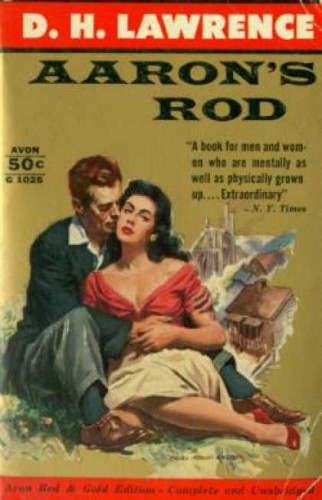 What Lawrence says here is applicable to both men and women. “To be oneself” in the true sense means to answer to the call of the deepest self. We can only achieve our “fullness of being” if we do so. The mind invents all manner of goals and projects and ideals to be pursued, but ultimately all that we do produces only frustration and emptiness if we act in a way that does not fundamentally satisfy the needs of our deepest, pre-mental, bodily nature.
What Lawrence says here is applicable to both men and women. “To be oneself” in the true sense means to answer to the call of the deepest self. We can only achieve our “fullness of being” if we do so. The mind invents all manner of goals and projects and ideals to be pursued, but ultimately all that we do produces only frustration and emptiness if we act in a way that does not fundamentally satisfy the needs of our deepest, pre-mental, bodily nature.
Lawrence writes further in Apocalypse: “The evil Logos says she must be ‘significant,’ she must ‘make something worth while’ of her life. So on and on she goes, making something worth while, piling up the evil forms of our civilization higher and higher, and never for a second escaping to be wrapped in the brilliant fluid folds of the new green dragon.” Earlier in the same text, Lawrence tells us that “The long green dragon with which we are so familiar on Chinese things is the dragon in his good aspect of life-bringer, life-giver, life-maker, vivifier.” In short, the “green dragon” represents the life force, the source of all, the Pan power. Lawrence is saying that modern woman, in search of something “significant” to do with her life, falls in with all the corrupt (largely, money-driven) pursuits that have brought men nothing but ulcers, emptiness, and early death. “All our present life-forms are evil,” he writes. “But with a persistence that would be angelic if it were not devilish woman insists on the best in life, by which she means the best of our evil life-forms, unable to realize that the best of evil life-forms are the most evil.” Like men, she loses touch with the natural both within herself and in the world surrounding her. Lawrence’s dragon symbolizes both of these: primal nature as such, and the primal nature within me. It is this dragon which Lawrence seeks to awake in himself, and in his readers. The tragedy of modern woman is that she has renounced the dragon, whereas she would be better off being devoured by it.
In John Thomas and Lady Jane Lawrence also links the ideal of fulfilled womanhood to the dragon. Following Connie Chatterley’s musings on the meaning of the phallus (which I quoted earlier), Lawrence writes:
The only thing which had taken her quite away from fear, if only for a night, was the strange gallant phallus looking round in its odd bright godhead, and now the arm of flesh around her, the socket of the hand against her breast, the slow, sleeping thud of the man’s heart against her body. It was all one thing—the mysterious phallic godhead. Now she knew that the worst had happened. This dragon had enfolded her, and its folds were pure gentleness and safety.
Make no mistake, Lawrence believes that women can adopt the ways of men; he believes that they can succeed at traditionally male work. But he believes that they do this at great cost to themselves. “Of all things, the most fatal to a woman is to have an aim,” Lawrence tells us. In general, he believes that the ultimate aim of life is simply living, and that we set a trap for ourselves when we declare that some goal or some ideal shall be the end of life, and believe that this will make life “meaningful.” This applies to men, but even more so to women. Why? Because, again, women are so much closer to the source that men tend to regard women as the life force embodied (“Mother Nature”). For a woman to live for something other than living is to pervert her nature, and her gift. Again, Lawrence’s position is not that a woman is incapable of doing the work of a man, but ultimately she will find it deadening: “The moment woman has got man’s ideals and tricks drilled into her, the moment she is competent in the manly world—there’s an end of it. She’s had enough. She’s had more than enough. She hates the thing she has embraced.”
In our age, many women who have forgone marriage and children in order to pursue a career are discovering this. The body has its own needs and ends, and the organism as a whole cannot flourish and achieve satisfaction unless these needs and ends are satisfied. With some exceptions, women who have chosen not to have children regret it, and suffer in other ways as well (for example, they are at higher risk for developing ovarian cancer than women who have given birth). The same goes for men, many of whom spend a great many “productive” years without feeling a need to reproduce–then are suddenly hit by that need and launch themselves on a frantic, sometimes worldwide search for a suitable mate able to father them a child. Lawrence wrote the following, prophetic words in one of his final essays:
It is all an attitude, and one day the attitude will become a weird cramp, a pain, and then it will collapse. And when it has collapsed, and she looks at the eggs she has laid, votes, or miles of typewriting, years of business efficiency—suddenly, because she is a hen and not a cock, all she has done will turn into pure nothingness to her. Suddenly it all falls out of relation to her basic henny self, and she realizes she has lost her life. The lovely henny surety, the hensureness which is the real bliss of every female, has been denied her: she had never had it. Having lived her life with such utmost strenuousness and cocksureness, she has missed her life altogether. Nothingness!
This quote suggests that Lawrence believes that the woman, the hen, ruins herself by taking up the ways appropriate and natural for the cock – but this is not exactly what he means. In Lawrence’s view, the modern ways of the cock are destroying the cock as well, but they are doubly bad for the hen. What’s bad for the gander is worse for the goose. Lawrence believes that in order to achieve satisfaction in life, we must get in touch with that primal self that the woman is fortunate enough always to be closer to.
4. A New Relation Between Man and Woman
So what is to be done? How are we to repair the damage that has been done in the modern world to the relation between the sexes? How are we to make men into men again, and women into women?
Lawrence has a great deal to say on this subject, but one of his oft-repeated recommendations essentially amounts to saying that relations between the sexes should be severed. By this he means that in order for men and women to come to each other as authentic men and women, they must stop trying to be “pals” with each other. In a 1925 letter he writes, “Friendship between a man and a woman, as a thing of first importance to either, is impossible: and I know it. We are creatures of two halves, spiritual and sensual—and each half is as important as the other. Any relation based on the one half—say the delicate spiritual half alone—inevitably brings revulsion and betrayal.”
In order for men and women to be friends, they must deliberately put aside or suppress their sexual identities and their very different natures. They must actively ignore the fact that they are men and women. They relate to each other, in effect, as neutered, sexless beings. They can never truly relax around each other, for they must continually monitor the way that they look at each other or (more problematic) touch each other. Sitting in too close proximity could awaken feelings that neither wants awakened. If, with respect to their “daytime selves,” men and women are forced to relate to each other in this way regularly, it has the potential of wrecking the ability of the “nighttime self” to relate to the opposite sex in a natural, sensual manner. Once accustomed to the daily routine of suppressing thoughts and feelings, and taking great care never to show a sexual side to their nature, these habits carry over into the realm of the romantic and sexual. Dating and courtship become fraught with tension, each party unsure of the “appropriateness” of this or that display of sexual interest or simple affection. The man, in short, becomes afraid to be a man, and the woman to be a woman. “On mixing with one another, in becoming familiar, in being ‘pals,’ they lose their own male and female integrity.” Writing of the modern marriage, Wendell Berry states
Marriage, in what is evidently its most popular version, is now on the one hand an intimate “relationship” involving (ideally) two successful careerists in the same bed, and on the other hand a sort of private political system in which rights and interests must be constantly asserted and defended. Marriage, in other words, has now taken the form of divorce: a prolonged and impassioned negotiation as to how things shall be divided. During their understandably temporary association, the “married” couple will typically consume a large quantity of merchandise and a large portion of each other.
If we must suppress our masculine and feminine natures in order to be friends with the opposite sex, in what way then do we actually relate to each other? We relate almost entirely through the intellect. Lawrence writes, “Nowadays, alas, we start off self-conscious, with sex in the head. We find a woman who is the same. We marry because we are ‘pals.’” And: “We have made the mistake of idealism again. We have thought that the woman who thinks and talks as we do will be the blood-answer.” Modern men and women begin their relationships as sexless things who relate through ideas and speech. The man looks for a woman, or the woman for a man who thinks and talks as they do; who “knows where they are coming from,” and has “similar values.” They might as well not have bodies at all, or conduct the initial stages of their relationships by telephone or email. Indeed, that is exactly the way many modern relationships are now beginning. But the primary way men and women are built to relate to each other is through the body and the signals of the body; through the subtle, sexual “vibrations” that each gives off, through the sexual gaze (different in the male and in the female), and through touch. No real, romantic relationship can be forged without these, and without feeling through these non-mental means that the two are “right” for each other. We cannot start with “mental agreement” and then construct a sexual relationship around it.
Lawrence, like Rousseau, had a good deal to say about education, and in fact much of what he says is Rousseauian. His ideas on the subject are expressed chiefly in Fantasia of the Unconscious and in a long essay, “The Education of the People.”
In Fantasia of the Unconscious, in a chapter entitled “First Steps in Education,” Lawrence lays out a new program for educating girls and boys: “All girls over ten years of age must attend at one domestic workshop. All girls over ten years of age may, in addition, attend at one workshop of skilled labour or of technical industry, or of art. . . . All boys over ten years of age must attend at one workshop of domestic crafts, and at one workshop of skilled labour, or of technical industry, or of art.” The difference between how boys and girls are to be educated (at least initially) is that whereas both are required to attend a “domestic workshop,” only boys are required to attend a “workshop of skilled labour or of technical industry, or of art.” Keep in mind that Lawrence is laying down the rules for education in his ideal society. He anticipates that whereas all males will work outside the home (in some fashion or other), not all females will. His system is not designed to force women into the role of homemakers, for he leaves it open that girls may, if they choose, learn the same skills as boys. As to higher education, Lawrence leaves this open: “Schools of mental culture are free to all individuals over fourteen years of age. Universities are free to all who obtain the first culture degree.” The system is designed in such a way that individuals are drawn to pursue certain avenues based on their personalities and natural temperaments. Unlike our present society, in Lawrence’s world there would be no universal pressure to attend university: only individuals with certain natural gifts and inclinations would go in that direction. Similarly, the system leaves open the possibility that some women will pursue the same path as men, but only if that is their natural inclination. The intent of Lawrence’s program is not to force individuals into certain roles, but to cultivate their natural, innate characteristics. And as we have seen, Lawrence believes that males and females are innately different.
Lawrence makes it clear elsewhere that in the early years education will be sex-segregated. This is intended to facilitate the development of each student’s character and talents. Males, especially early in life, relate more easily to other males and are better able to devote themselves to their studies in the absence of females. The same thing applies to females. Sex-segregated education in the early years also has the advantage, Lawrence believes, of promoting a healthier interaction between males and females later on. In Fantasia of the Unconscious he states, “boys and girls should be kept apart as much as possible, that they may have some sort of respect and fear for the gulf that lies between them in nature, and for the great strangeness which each has to offer the other, finally.” After all, “You don’t find the sun and moon playing at pals in the sky.”
But this is, of course, all in the realm of fantasy. Lawrence’s system would be practical, if modern society could be entirely restructured, and he is aware that this is not likely to occur anytime soon. So what are we to do in the meantime? Here we encounter some of Lawrence’s most controversial ideas, and most inflammatory prose. He writes, “men, drive your wives, beat them out of their self-consciousness and their soft smarminess and good, lovely idea of themselves. Absolutely tear their lovely opinion of themselves to tatters, and make them look a holy ridiculous sight in their own eyes.” It is this sort of thing that has made Lawrence a bête noire of feminists. Yet, in the next sentence, he adds “Wives, do the same to your husbands.” Lawrence’s intention, as always, is to destroy the ego-centredness in both husband and wife; to destroy the modern tendency for men and women to relate to each other, and to themselves, through ideas and ideals.
As a man and a husband, however, he writes primarily from that standpoint: “Fight your wife out of her own self-conscious preoccupation with herself. Batter her out of it till she’s stunned. Drive her back into her own true mode. Rip all her nice superimposed modern-woman and wonderful-creature garb off her, Reduce her once more to a naked Eve, and send the apple flying.” Does he mean any of this literally? Is he advocating that husbands beat their wives? Perhaps. Lawrence and Frieda were famous for their quarrels, which often came to blows, though the blows were struck by both. Lawrence states the purpose of such “beatings” (whether literal or figurative) as follows: “Make her yield to her own real unconscious self, and absolutely stamp on the self that she’s got in her head. Drive her forcibly back, back into her own true unconscious.”
As we have already seen, Lawrence believes that healthy relations between a man and a woman depend largely on the man’s ability to make the woman believe in him, and the purpose he has set for himself in life. Sex unites the “nighttime self” of men and women, but the daytime self can only be united, for Lawrence, through the man’s devotion to something outside the marriage, and the woman’s belief in the man. This is just the same thing as saying that what unites the lives of men and women (as opposed to their sexual natures) is the woman’s belief in the man and his purpose. And so Lawrence writes:
You’ve got to fight to make a woman believe in you as a real man, a pioneer. No man is a man unless to his woman he is a pioneer. You’ll have to fight still harder to make her yield her goal to yours: her night goal to your day goal. . . . She’ll never believe until you have your soul filled with a profound and absolutely inalterable purpose, that will yield to nothing, least of all to her. She’ll never believe until, in your soul, you are cut off and gone ahead, into the dark. . . . Ah, how good it is to come home to your wife when she believes in you and submits to your purpose that is beyond her. . . . And you feel an unfathomable gratitude to the woman who loves you and believes in your purpose and receives you into the magnificent dark gratification of her embrace. That’s what it is to have a wife.
Friends of Lawrence must have smiled when they read these words, for he was hardly giving an accurate description of his own marriage. As I have mentioned, Lawrence and Frieda frequently fell into violent quarrels, and she would often demean and humiliate him, and he her. Yet, ultimately, Frieda believed in Lawrence’s abilities and his mission in life; he knew it and derived strength from it. Those who may think that Lawrence’s prescriptions for marriage require an extraordinarily submissive and even unintelligent wife should take note of the sort of woman Lawrence himself chose.
Now, some might respond to Lawrence’s description of marriage by asking, understandably, “Where is love in all of this? What has become of love between man and wife?” Yet Lawrence speaks again and again, especially in Women in Love, of love between man and wife as a means to wholeness, as a way to transcend the false, ego-centered self. In a 1914 letter he tells a male correspondent:
You mustn’t think that your desire or your fundamental need is to make a good career, or to fill your life with activity, or even to provide for your family materially. It isn’t. Your most vital necessity in this life is that you shall love your wife completely and implicitly and in entire nakedness of body and spirit. Then you will have peace and inner security, no matter how many things go wrong. And this peace and security will leave you free to act and to produce your own work, a real independent workman.
Initially in these remarks Lawrence seems to be taking a position different from the one he expressed in the later Fantasia of the Unconscious, where he asserts that the man derives his chief fulfillment from purpose, not from the home and family. But Lawrence’s position is complex. He believes that the man requires a relationship to a woman in order to be strengthened in the pursuit of his purpose. Recall the lines I quoted earlier, “Let a man walk alone on the face of the earth, and he feels himself like a loose speck blown at random. Let him have a woman to whom he belongs, and he will feel as though he had a wall to back up against; even though the woman be mentally a fool.” Man fulfills himself through having a purpose beyond the home, but he must have a home and a wife to support him. Through romantic love (which always involves a strong sexual component) the man comes to his primal self, and emerges from the encounter with the strength to carry on in the world. Lawrence is telling his correspondent—and this becomes clear in the last lines of the passage quoted—that in order to accomplish anything meaningful he must first submerge himself, body and soul, into love for his wife.
Of course, this makes it sound as if Lawrence regards married love merely as a means to an end: merely as a means to pursuing a male “purpose.” Elsewhere, however, he speaks of it as if it were an end in itself. This is particularly the case in Women in Love. Early in the novel Birkin tells Gerald, “I find . . . that one needs some one really pure single activity—I should call love a single pure activity. . . . The old ideals are dead as nails—nothing there. It seems to me there remains only this perfect union with a woman—sort of ultimate marriage—and there isn’t anything else.” Again, Lawrence is seeking a way to get beyond idealism, and all the corrupt apparatus of modern, ego-driven life. To get beyond this, to what? To the true self, and to relationships based upon blood-consciousness and honest, uncorrupted sentiment. In Women in Love, Lawrence’s plan for achieving this involves a “perfect union” with a woman (and, as he states in the same novel, “the additional perfect relationship between man and man—additional to marriage”).
Birkin wants to achieve this with Ursula, but he keeps insisting over and over (much to her bewilderment and anger) that he means something more than mere “love.” The reason for this is that Birkin and Lawrence associate “love” with an ideal that is drummed into the heads of people in the modern, post-Christian world. We are issued with the baffling injunction to “love thy neighbor,” where thy neighbor means all of humanity. Any intelligent person can see that to love everyone means to love no one in particular. And any psychologically healthy person would find valueless the “love” of someone who claimed also to love all the rest of humanity. Lawrence is reacting also against the lovey-dovey, white lace, sanitized, billing and cooing sort of “love” that society encourages in married couples. Lawrence’s disgust for this sort of thing is expressed in his short story “In Love.” The main character, Hester, is repulsed by the “love” her fiancé, Joe, shows for her. They had been friends prior to their engagement and got on well
But now, alas, since she had promised to marry him, he had made the wretched mistake of falling “in love” with her. He had never been that way before. And if she had known he would get this way now, she would have said decidedly: Let us remain friends, Joe, for this sort of thing is a come-down. Once he started cuddling and petting, she couldn’t stand him. Yet she felt she ought to. She imagined she even ought to like it. Though where the ought came from, she could not see.
Birkin (like Lawrence) wants to avoid at all costs falling into this sort of scripted, stereotyped love relationship, but Ursula has a great deal of difficulty understanding what it is that he does want. He tries his best to explain it to her:
“There is,” he said, in a voice of pure abstraction, “a final me which is stark and impersonal and beyond responsibility. So there is a final you. And it is there I would want to meet you—not in the emotional, loving plane—but there beyond, where there is no speech and no terms of agreement. There we are two stark, unknown beings, two utterly strange creatures, I would want to approach you, and you me. And there could be no obligation, because there is no standard for action there, because no understanding has been reaped from that plane. It is quite inhuman—so there can be no calling to book, in any form whatsoever—because one is outside the pale of all that is accepted, and nothing known applies. One can only follow the impulse, taking that which lies in front, and responsible for nothing, giving nothing, only each taking according to the primal desire.”
The “final me and you” refers to the primal self. “The old ideals are dead as nails” and so is modern civilization. Birkin does not want his relationship to Ursula to “fit” into the modern social scheme, to become conventional or “safe.” He also fears and abhors the impress of society on his conscious, mental self. He does not want to come together with Ursula “though the ego,” as it were. He wants them to come together through their primal selves and to forge a relationship that is based on something deeper and far stronger than what the overly socialized creatures around him call “love.” Yet, at the same time, one could simply say that what he wants is a truer, deeper love, and that what passes for love with other people is usually not the genuine article. They are doing what one “ought” to do, even when in bed together.
In The Rainbow (to which Women in Love forms the “sequel”), Tom Brangwen offers his views on love and marriage in a famous passage:
“There’s very little else, on earth, but marriage. You can talk about making money, or saving souls. You can save your own soul seven times over, and you may have a mint of money, but your soul goes gnawin’, gnawin’, gnawin’, and it says there’s something it must have. In heaven there is no marriage. But on earth there is marriage, else heaven drops out, and there’s no bottom to it. . . . If we’ve got to be Angels . . . and if there is no such thing as a man or a woman among them, then it seems to me as a married couple makes one Angel. . . . [An] Angel can’t be less than a human being. And if it was only the soul of a man minus the man, then it would be less than a human being. . . . An Angel’s got to be more than a human being. . . . So I say, an Angel is the soul of a man and a woman in one: they rise united at the Judgment Day, as one angel. . . . If I am to become an Angel, it’ll be my married soul, and not my single soul.”
À la Aristophanes in Plato’s Symposium, men and women form two halves of a complete human being. Human nature divides itself into two, complementary aspects: masculinity and femininity. A complete human being is made when a man and a woman are joined together. But they cannot be joined—not really—through the mental, social self, but only through the unconscious, primal self.
In Women in Love, this view returns but in a modified form. Now Birkin tells us, “One must commit oneself to a conjunction with the other—for ever. But it is not selfless—it is a maintaining of the self in mystic balance and integrity—like a star balanced with another star.” And Lawrence tells us of Birkin, “he wanted a further conjunction, where man had being and woman had being, two pure beings, each constituting the freedom of the other, balancing each other like two poles of one force, like two angels, or two demons.” Tom Brangwen’s view implies that men and women, considered separately, do not have complete souls, and that a complete soul is made only when they join together in marriage. There is a suggestion in what he says that the “individuality” of single men and women is false, and that only a married couple constitutes a true individual. Birkin’s ideal, on the other hand, involves the man and the woman each preserving their selfhood and individuality and “balancing” each other.
Despite the fact that Birkin frequently, and transparently, speaks for Lawrence we cannot take him as speaking for Lawrence here. I believe that it is Brangwen’s position that is closest to Lawrence’s own. When Women in Love opens, Birkin is in a relationship with Hermione, who Lawrence portrays as a woman living entirely from out of her head, without any naturalness or spontaneity. Yet there is a bit of this in Birkin as well, which is perhaps why he reacts against it so violently when he sees it in Hermione. After the passage just quoted from Women in Love, Lawrence writes of Birkin, “He wanted so much to be free, not under the compulsion of any need for unification, or tortured by unsatisfied desire. . . . And he wanted to be with Ursula as free as with himself, single and clear and cool, yet balanced, polarised with her. The merging, the clutching, the mingling of love was become madly abhorrent to him.” Lawrence then goes on to describe Birkin’s fear and loathing of women’s “clutching.” Birkin is a conflicted character. He wants to lose himself in a relationship with a woman, but fears it at the same time. He wants Ursula, and talks on and on about spontaneity and the evil of ideals, yet he is continually preaching to Ursula about his ideal relationship which, conveniently, is one in which he can unite with her yet preserve his ego intact. This at first bewilders then infuriates Ursula, who never understands what it is that he wants. In the end, the problem resolves itself, probably just as it would in real life. Drawn to Ursula by a power stronger than his conscious ego, Birkin eventually drops all of his talk, surrenders his will, and settles into a married bliss that is marred only by his continued desire for the love of a man.
Ultimately, Lawrence believes that the “establishment of a new relation” between men and women depends upon a return to the oldest of relationships, and that this is possible only through a recovery of the oldest part of the self. We must, he believes, drop our ideal of the unisex society and be alive again to the fundamental, natural differences between men and women. Men and woman do not naturally desire to enjoy each other’s society at all times. We must not only educate men and women apart, but re-establish “spaces” within civilized society where men can be with men, and women with women. We must not force men and women together and command them to forget that they are men and women. Education and, indeed, much else in society must work to cultivate and to affirm the natural, masculine qualities and virtues in men, and the feminine qualities and virtues in women. Having become true men and women and having awakened, through their apartness, to the mystery and the allure that is the opposite sex, they will then come together and forge romantic alliances that are not based upon talk and “common values” but upon the “pull” between man and woman. Lawrence is not referring here simply to lust. A sexual element is, of course, involved, but what he means is the mysterious, ineffable attraction between an individual man and a woman, what we often call “chemistry,” which has nothing to do with the words they utter or the ideals they pay lip service to. And once this attraction is established, if the two desire to become bound to each other, then they must surrender themselves to the relationship. They must overcome their fear of the loss of ego boundaries. They must drop all talk of “rights” and not fall into the trap of treating the marriage as if it were a business partnership. For both, it is a leap into the unknown but in this case the unknown is the natural. When we plant a seed we must close the earth over it and go off and wait in anticipation. But we know that nature, being what it is, will produce as it has before. If all goes well, in that spot will grow the plant we were expecting. Similarly, marriage is not a human invention but something that grows naturally between a man and woman if its seed is planted in the fertile soil of the primal selves of each.
 When I was asked to review this book, I half groaned because I was sure of what to expect and I also knew it was not going to broaden my knowledge in a significant way. From my earlier reading up on other, but tangentially related subject areas (e.g., advertising), I already knew, and it seemed more than obvious to me, that consumer behavior had an evolutionary basis. Therefore, I expected this book would not make me look at the world in an entirely different way, but, rather, would reaffirm, maybe clarify, and hopefully deepen by a micron or two, my existing knowledge on the topic. The book is written for a popular audience, so my expectations were met. Fortunately, however, reading it proved not to be a chore: the style is very readable, the information is well-organized, and there are a number of unexpected surprises along the way to keep the reader engaged.
When I was asked to review this book, I half groaned because I was sure of what to expect and I also knew it was not going to broaden my knowledge in a significant way. From my earlier reading up on other, but tangentially related subject areas (e.g., advertising), I already knew, and it seemed more than obvious to me, that consumer behavior had an evolutionary basis. Therefore, I expected this book would not make me look at the world in an entirely different way, but, rather, would reaffirm, maybe clarify, and hopefully deepen by a micron or two, my existing knowledge on the topic. The book is written for a popular audience, so my expectations were met. Fortunately, however, reading it proved not to be a chore: the style is very readable, the information is well-organized, and there are a number of unexpected surprises along the way to keep the reader engaged. (1968), The Consumer Society: Myths and Structures
(1970), and For a Critique of the Political Economy of the Sign
(1972). Baudrillard believed that there were four ways an object acquired value: through its functional value (similar to the Marxian use-value); through its exchange, or economic value; through its symbolic value (the object’s relationship to a subject, or individual, such as an engagement ring to a young lady or a medal to an Olympic athlete); and, finally, through its sign value (the object’s value within a system of objects, whereby a Montblanc fountain-pen may signify higher socioeconomic status than a Bic ball-pen, or a Fair Trade organic chicken may signify certain social values in relation to a chicken that has been intensively farmed). Baudrillard focused most of his energy on the latter forms of value. Writing at the juncture between evolutionary psychology and marketing, Geoffrey Miller (an evolutionary psychologist) does the same here, except from a purely biological perspective.
, Jean Baudrillard’s early works on consumerism, and some of the texts in Miller’s own bibliography, which include — surprise, surprise! — The Bell Curve: Intelligence and Class Structure in American Life
, by Richard Herrnstein and Charles Murray, and The Global Bell Curve: Race, IQ, and Inequality Worldwide
, by Richard Lynn, among others.





 del.icio.us
del.icio.us
 Digg
Digg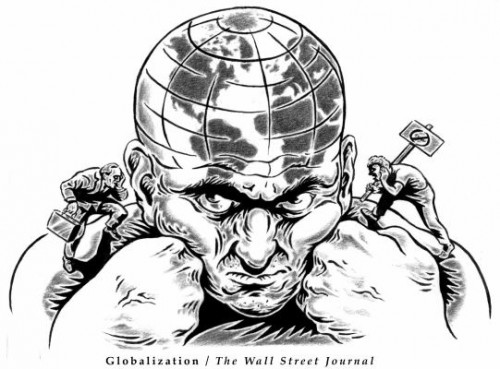 Jure Vujić,avocat, diplomé de droit à la Faculté de droit d’Assas ParisII, est un géopoliticien et écrivain franco-croate. Il est diplomé de la Haute Ecole de Guerre „Ban Josip Jelačić“ des Forces Armées Croates et de l’Academie diplomatique croate ou il donne des conférences regulières en géopolitique et géostratégie. Il est l’auteur des livres suivants: „Fragments de la pensée géopolitique“ ( Zagreb, éditions
Jure Vujić,avocat, diplomé de droit à la Faculté de droit d’Assas ParisII, est un géopoliticien et écrivain franco-croate. Il est diplomé de la Haute Ecole de Guerre „Ban Josip Jelačić“ des Forces Armées Croates et de l’Academie diplomatique croate ou il donne des conférences regulières en géopolitique et géostratégie. Il est l’auteur des livres suivants: „Fragments de la pensée géopolitique“ ( Zagreb, éditions 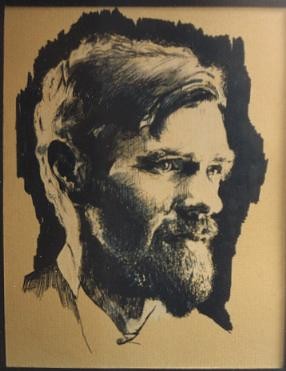 1. The Genealogy of Modernity
1. The Genealogy of Modernity Lawrence encountered the effects of modernity—especially the Industrial Revolution—directly in his native Midlands. He saw how if affected people, generally for the worse. Again and again he sets his stories against the backdrop of the collieries. He saw the miners become increasingly dehumanized. Working in the earth, they become cut off from it and from themselves. They lived, but they did not flourish. Lawrence’s remarks about the Industrial Revolution, capitalism, and the condition of the miners put him quite close to the thought of Marx and other socialist writers. In fact, it would not be at all unreasonable to claim Lawrence as a kind of socialist. However, as we shall see, few socialists would wish to do so!
Lawrence encountered the effects of modernity—especially the Industrial Revolution—directly in his native Midlands. He saw how if affected people, generally for the worse. Again and again he sets his stories against the backdrop of the collieries. He saw the miners become increasingly dehumanized. Working in the earth, they become cut off from it and from themselves. They lived, but they did not flourish. Lawrence’s remarks about the Industrial Revolution, capitalism, and the condition of the miners put him quite close to the thought of Marx and other socialist writers. In fact, it would not be at all unreasonable to claim Lawrence as a kind of socialist. However, as we shall see, few socialists would wish to do so!


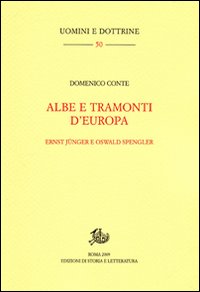
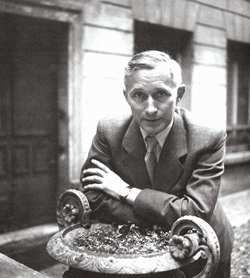


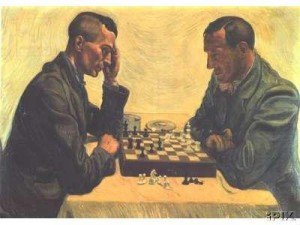 Perché lo strumento tecnico possa essere ad-operato dall’uomo, è necessario che questi faccia propria precisamente la razionalità strumentale. Se infatti l’uomo adotta la tecnica come strumento, non ha bisogno di mettere in gioco tutte quelle qualità che lo distinguono dagli altri uomini. Secondo una tradizione di pensiero che si impone già prima di
Perché lo strumento tecnico possa essere ad-operato dall’uomo, è necessario che questi faccia propria precisamente la razionalità strumentale. Se infatti l’uomo adotta la tecnica come strumento, non ha bisogno di mettere in gioco tutte quelle qualità che lo distinguono dagli altri uomini. Secondo una tradizione di pensiero che si impone già prima di 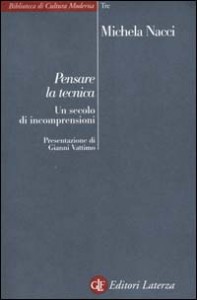
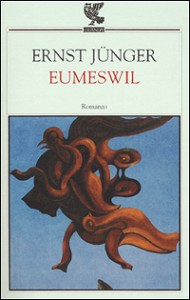

 Malgré l’instrumentalisation des corpus doctrinaux de l’Ecole de Francfort et malgré les désastres que cette instrumentalisation a provoqué en Europe, les idées diffusées par l’Ecole de Francfort véhiculent des thèmes intéressants qui, eux, n’ont pas été inclus dans la vulgate, seule responsable des dégâts sociaux et anthropologiques que nous déplorons depuis quelques décennies en Europe. Quand un Herbert Marcuse (1898-1979) nous parle de l’homme unidimensionnel, pour déplorer sa banalisation dans les sociétés industrielles modernes, il ne fait qu’énoncer un état de choses déjà déploré par Nietzsche. L’homme unidimensionnel de Marcuse partage bien des traits en commun avec le « dernier homme » de Nietzsche. Dans « Eros et la civilisation », Marcuse évoque le refoulement du désir dans les sociétés modernes, exactement comme le déploraient certains mouvements de jeunesse alternatifs allemands entre 1896 et 1933 ; cette option philosophique de vouloir libérer les instincts refoulés, en imitant les groupes marginaux ou exclus des sociétés même au détriment des majorités politiques et parlementaires, a eu, avec l’appui de tout un attirail d’interprétations freudiennes, un impact important sur la révolte étudiante des années 67-68 en Allemagne, en France et ailleurs en Europe. Marcuse condamnera toutefois l’usage de la violence et se fera apostropher comme « mou » par certains échaudés, dénommés « Krawallos ». Entre la théorie écrite et la pratique mise en œuvre par les services à partir des années 60 du 20ème siècle, il y a une nette différence. Mais c’est la vulgate, la version instrumentalisée, sloganisée à l’usage des Krawallos, qui a triomphé au détriment de la théorie proprement dite : c’est au départ d’une hyper-simplification du contenu d’ « Eros et la civilisation » que l’on a fabriqué la société festiviste actuelle, une société festiviste incapable de forger un Etat digne de ce nom ou de générer un vivre-ensemble harmonieux et créatif. Tout comme dans le « Meilleur des mondes » d’Aldous Huxley, on vend des drogues et l’on favorise la promiscuité sexuelle pour endormir les volontés.
Malgré l’instrumentalisation des corpus doctrinaux de l’Ecole de Francfort et malgré les désastres que cette instrumentalisation a provoqué en Europe, les idées diffusées par l’Ecole de Francfort véhiculent des thèmes intéressants qui, eux, n’ont pas été inclus dans la vulgate, seule responsable des dégâts sociaux et anthropologiques que nous déplorons depuis quelques décennies en Europe. Quand un Herbert Marcuse (1898-1979) nous parle de l’homme unidimensionnel, pour déplorer sa banalisation dans les sociétés industrielles modernes, il ne fait qu’énoncer un état de choses déjà déploré par Nietzsche. L’homme unidimensionnel de Marcuse partage bien des traits en commun avec le « dernier homme » de Nietzsche. Dans « Eros et la civilisation », Marcuse évoque le refoulement du désir dans les sociétés modernes, exactement comme le déploraient certains mouvements de jeunesse alternatifs allemands entre 1896 et 1933 ; cette option philosophique de vouloir libérer les instincts refoulés, en imitant les groupes marginaux ou exclus des sociétés même au détriment des majorités politiques et parlementaires, a eu, avec l’appui de tout un attirail d’interprétations freudiennes, un impact important sur la révolte étudiante des années 67-68 en Allemagne, en France et ailleurs en Europe. Marcuse condamnera toutefois l’usage de la violence et se fera apostropher comme « mou » par certains échaudés, dénommés « Krawallos ». Entre la théorie écrite et la pratique mise en œuvre par les services à partir des années 60 du 20ème siècle, il y a une nette différence. Mais c’est la vulgate, la version instrumentalisée, sloganisée à l’usage des Krawallos, qui a triomphé au détriment de la théorie proprement dite : c’est au départ d’une hyper-simplification du contenu d’ « Eros et la civilisation » que l’on a fabriqué la société festiviste actuelle, une société festiviste incapable de forger un Etat digne de ce nom ou de générer un vivre-ensemble harmonieux et créatif. Tout comme dans le « Meilleur des mondes » d’Aldous Huxley, on vend des drogues et l’on favorise la promiscuité sexuelle pour endormir les volontés. 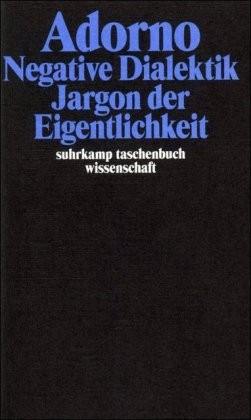 Outre Marcuse, idole des festivistes de mai 68, l’Ecole de Francfort a surtout aligné, en Allemagne, deux figures notoires, Theodor W. Adorno (1903-1969) et Max Horkheimer (1895-1973). Ces deux philosophes ont été les principaux représentants de la philosophie allemande dans les années 50. Adorno a déployé une critique de l’autoritarisme qui, selon lui, aurait toujours structuré la pensée allemande et, partant, européenne et américaine, faisant courir le risque de voir émerger de nouveaux fascismes à intervalles réguliers dans l’histoire. Il va vouloir déconstruire cet autoritarisme pour enrayer à l’avance toute émergence de nouveaux fascismes. Pour y procéder, il élaborera un système de mesure, consigné dans son célèbre ouvrage, La personnalité autoritaire. On y apprend même comment mesurer sur « l’échelle F » le degré de « fascisme » que peut receler la personnalité d’un individu. Le livre contient aussi un classement des citoyens en « Vorurteilsvollen » et « Vorurteilsfreien », soit ceux qui sont « pleins de préjugés » et ceux « qui sont libres de tous préjugés ». Ceux qui sont pleins de préjugés comptent aussi les « rebelles » et les « psychopathes », les « fous » et les « manipulateurs » dans leurs rangs. Ceux qui sont libres de tout préjugé comptent tout de même des « rigides », des protestataires, des impulsifs et des « easy goings » (« ungezwungene Vorurteilsfreie ») dans leurs rangs, qui sont posés comme sympathiques, comme mobilisables dans un projet « anti-autoritaire » mais dont l’efficacité n’est pas parfaite. Le summum de la qualité citoyenne ne se trouve que chez une minorité
Outre Marcuse, idole des festivistes de mai 68, l’Ecole de Francfort a surtout aligné, en Allemagne, deux figures notoires, Theodor W. Adorno (1903-1969) et Max Horkheimer (1895-1973). Ces deux philosophes ont été les principaux représentants de la philosophie allemande dans les années 50. Adorno a déployé une critique de l’autoritarisme qui, selon lui, aurait toujours structuré la pensée allemande et, partant, européenne et américaine, faisant courir le risque de voir émerger de nouveaux fascismes à intervalles réguliers dans l’histoire. Il va vouloir déconstruire cet autoritarisme pour enrayer à l’avance toute émergence de nouveaux fascismes. Pour y procéder, il élaborera un système de mesure, consigné dans son célèbre ouvrage, La personnalité autoritaire. On y apprend même comment mesurer sur « l’échelle F » le degré de « fascisme » que peut receler la personnalité d’un individu. Le livre contient aussi un classement des citoyens en « Vorurteilsvollen » et « Vorurteilsfreien », soit ceux qui sont « pleins de préjugés » et ceux « qui sont libres de tous préjugés ». Ceux qui sont pleins de préjugés comptent aussi les « rebelles » et les « psychopathes », les « fous » et les « manipulateurs » dans leurs rangs. Ceux qui sont libres de tout préjugé comptent tout de même des « rigides », des protestataires, des impulsifs et des « easy goings » (« ungezwungene Vorurteilsfreie ») dans leurs rangs, qui sont posés comme sympathiques, comme mobilisables dans un projet « anti-autoritaire » mais dont l’efficacité n’est pas parfaite. Le summum de la qualité citoyenne ne se trouve que chez une minorité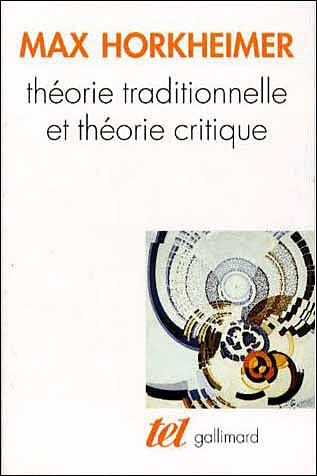 Outre la composition de cet instrument de contrôle que fut le livre d’Adorno intitulé La personnalité autoritaire (Studien zum autoritären Charakter), les deux philosophes de l’Ecole de Francfort, installés dans l’Allemagne d’après-guerre, en rédigent le principal manifeste philosophique, Die Dialektik der Aufklärung (= « La dialectique des Lumières »), où ils affirment s’inscrire dans la tradition des Lumières, née au 18ème siècle, tout en critiquant certains avatars ultérieurs de cette démarche philosophique. Pour Horkheimer et Adorno, la science et la technologie, qui ont pris leur élan à l’époque des Lumières et dans les premiers balbutiements de la révolution industrielle avec l’appui des Encyclopédistes autour de d’Alembert et Diderot, ont pris au fil du temps un statut marqué d’ambigüité. La technologie et la science ont débouché sur la technocratie, affirment Horkheimer et Adorno dans leur manifeste, et, dans ce processus involutif, la raison des Lumières, d’idéelle est devenue « instrumentale », avec le risque d’être instrumentalisée par des forces politiques ne partageant pas l’idéal philosophique des Lumières (sous-entendu : les diverses formes de fascisme ou les néoconservatismes technocratiques d’après 1945). Le programme promu par La personnalité autoritaire peut être interprété, sans sollicitation outrancière, comme un instrument purement technocratique destiné à formater les masses dans un sens précis, contraire à leurs dispositions naturelles et ontologiques ou contraire aux legs d’une histoire nationale particulière. Alors qu’ils inventent un instrument de nature nettement technocratique, Adorno et Horkheimer critiquent la technocratie occidentale sur des bases sociologiques que nous pouvons pleinement accepter : en effet, les deux philosophes s’inscrivent dans un filon sociologique inauguré, non pas par Marx et ses premiers fidèles, mais par Georg Simmel et Max Weber. Ce dernier voulait lancer, par ses travaux et ceux de ses étudiants, « une science du réel, nous permettant de comprendre dans sa spécificité même la réalité en laquelle nos vies sont plongées ». Pour Simmel et Weber, le développement des sciences et des technologies apporteront certainement une quantité de bienfaits aux sociétés humaines mais elles provoqueront simultanément une hypertrophie des appareils abstraits, ceux de la technocratie en marche, par exemple, ceux de l’administration qui multipliera les règles de coercition sociale dans tous les domaines, conduisant à l’émergence d’un gigantesque « talon d’acier » (iron heel) ou d’une cage d’acier, qui oblitèreront la créativité humaine.
Outre la composition de cet instrument de contrôle que fut le livre d’Adorno intitulé La personnalité autoritaire (Studien zum autoritären Charakter), les deux philosophes de l’Ecole de Francfort, installés dans l’Allemagne d’après-guerre, en rédigent le principal manifeste philosophique, Die Dialektik der Aufklärung (= « La dialectique des Lumières »), où ils affirment s’inscrire dans la tradition des Lumières, née au 18ème siècle, tout en critiquant certains avatars ultérieurs de cette démarche philosophique. Pour Horkheimer et Adorno, la science et la technologie, qui ont pris leur élan à l’époque des Lumières et dans les premiers balbutiements de la révolution industrielle avec l’appui des Encyclopédistes autour de d’Alembert et Diderot, ont pris au fil du temps un statut marqué d’ambigüité. La technologie et la science ont débouché sur la technocratie, affirment Horkheimer et Adorno dans leur manifeste, et, dans ce processus involutif, la raison des Lumières, d’idéelle est devenue « instrumentale », avec le risque d’être instrumentalisée par des forces politiques ne partageant pas l’idéal philosophique des Lumières (sous-entendu : les diverses formes de fascisme ou les néoconservatismes technocratiques d’après 1945). Le programme promu par La personnalité autoritaire peut être interprété, sans sollicitation outrancière, comme un instrument purement technocratique destiné à formater les masses dans un sens précis, contraire à leurs dispositions naturelles et ontologiques ou contraire aux legs d’une histoire nationale particulière. Alors qu’ils inventent un instrument de nature nettement technocratique, Adorno et Horkheimer critiquent la technocratie occidentale sur des bases sociologiques que nous pouvons pleinement accepter : en effet, les deux philosophes s’inscrivent dans un filon sociologique inauguré, non pas par Marx et ses premiers fidèles, mais par Georg Simmel et Max Weber. Ce dernier voulait lancer, par ses travaux et ceux de ses étudiants, « une science du réel, nous permettant de comprendre dans sa spécificité même la réalité en laquelle nos vies sont plongées ». Pour Simmel et Weber, le développement des sciences et des technologies apporteront certainement une quantité de bienfaits aux sociétés humaines mais elles provoqueront simultanément une hypertrophie des appareils abstraits, ceux de la technocratie en marche, par exemple, ceux de l’administration qui multipliera les règles de coercition sociale dans tous les domaines, conduisant à l’émergence d’un gigantesque « talon d’acier » (iron heel) ou d’une cage d’acier, qui oblitèreront la créativité humaine.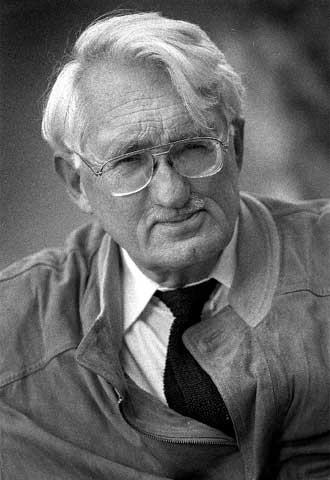 Habermas, ancien assistant d’Horkheimer puis son successeur à la tête de l’Institut de Francfort, devient, dès la fin des années 60, la figure de proue de la seconde génération de l’Ecole de Francfort. Son objectif ? Pour éviter la « cristallisation » des résidus de l’autoritarisme et des effets de l’application de la « raison instrumentale », une « cristallisation » qui aurait indubitablement ramené au pouvoir une nouvelle idéologie forte et autoritaire, Habermas s’ingéniera à théoriser une « praxis de la discussion permanente » (s’opposant en cela à Carl Schmitt qui, disciple de l’Espagnol Donoso Cortès, abominait la discussion et la « classe discutailleuse » au bénéfice des vrais décideurs, seuls aptes à maintenir le politique en place, les Etats et les empires en bon ordre de fonctionnement). La discussion et cette culture du débat permanent devaient justement empêcher les décisions trop tranchées amenant aux « cristallisations ». Les évolutions politiques devaient se dérouler lentement dans le temps, sans brusqueries ni hâtes même quand les décisions claires et nettes s’avéraient nécessaires, vu l’urgence, l’ Ernstfall. Cette posture habermasienne ne plaisait pas à tous les hommes de gauche, surtout aux communistes durs et purs, aux activistes directs : sa théorie a parfois été décrite comme l’incarnation du « défaitisme postfasciste », inaugurant, dans l’après-guerre, une « philosophie de la désorientation et des longs palabres ». Habermas est ainsi devenu le philosophe déréalisé le plus emblématique d’Europe. En 1990, il déplore la réunification allemande car celle-ci « met en danger la société multiculturelle et l’unité européenne qui étaient toutes deux depuis quelque temps déjà en voie de réalisation ». La seule alternative, pour Habermas, c’est de remplacer l’appartenance nationale des peuples par un « patriotisme constitutionnel », préférable, selon lui, « aux béquilles prépolitiques que sont la nationalité (charnelle) et l’idée de la communauté de destin » (Habermas s’attaque là aux deux conceptions que l’on trouve en Allemagne : l’idéal nationalitaire de romantique mémoire et l’idéal prussien a-national de participation à la vie et à la défense d’un type particulier d’Etat, à connotations spartiates). Le « patriotisme constitutionnel » est-il dès lors un antidote à la guerre, à ces guerres qu’ont déclenché les patriotismes appuyés sur les deux « béquilles » dénoncées par Habermas, soit l’idéal nationalitaire et l’idéal prussien ? En principe, oui ; en pratique, non, car en 1999 quand l’OTAN attaque la Serbie sous prétexte qu’elle oppresse la minorité albanaise du Kosovo, Habermas bénit l’opération en la qualifiant « de bond en avant sur la voie qui mène du droit des gens classique au droit cosmopolite d’une société mondiale de citoyens ». Et il ajoutait : « les voisins démocratiques (c’est-à-dire ceux qui avaient fait leur l’idée de « patriotisme constitutionnel ») ont le droit de passer à l’action pour apporter une aide de première nécessité, légitimée par le droit des gens ». Contradiction : le « constitutionalisme globaliste de l’OTAN » a sanctifié un réflexe identitaire ethno-national, celui des Albanais du Kosovo, contre le réflexe ethno-national des Serbes. L’OTAN, avec la bénédiction d’Habermas, a paradoxalement agi pour restaurer l’une des béquilles que ce dernier a toujours voulu éradiquer. Tout en pariant sur un élément musulman, étranger à l’Europe, importation turque dans les Balkans, au détriment de l’albanité catholique et orthodoxe, avant de l’être pour la « serbicité » slave et orthodoxe. Le tout pour permettre à l’US Army de se faire octroyer par le nouvel Etat kosovar la plus formidable base terrestre en Europe, Camp Bondsteele, destiné à remplacer les bases allemandes évacuées progressivement depuis la réunification. Camp Bondsteele sert à asseoir une présence militaire dans les Balkans, tremplin pour le contrôle de la Mer Noire, de la Méditerranée orientale et de l’Anatolie turque. Ces déclarations d’Habermas vieillissant ressemblent étrangement à l’agitation de ces chiens qui tentent de se manger la queue.
Habermas, ancien assistant d’Horkheimer puis son successeur à la tête de l’Institut de Francfort, devient, dès la fin des années 60, la figure de proue de la seconde génération de l’Ecole de Francfort. Son objectif ? Pour éviter la « cristallisation » des résidus de l’autoritarisme et des effets de l’application de la « raison instrumentale », une « cristallisation » qui aurait indubitablement ramené au pouvoir une nouvelle idéologie forte et autoritaire, Habermas s’ingéniera à théoriser une « praxis de la discussion permanente » (s’opposant en cela à Carl Schmitt qui, disciple de l’Espagnol Donoso Cortès, abominait la discussion et la « classe discutailleuse » au bénéfice des vrais décideurs, seuls aptes à maintenir le politique en place, les Etats et les empires en bon ordre de fonctionnement). La discussion et cette culture du débat permanent devaient justement empêcher les décisions trop tranchées amenant aux « cristallisations ». Les évolutions politiques devaient se dérouler lentement dans le temps, sans brusqueries ni hâtes même quand les décisions claires et nettes s’avéraient nécessaires, vu l’urgence, l’ Ernstfall. Cette posture habermasienne ne plaisait pas à tous les hommes de gauche, surtout aux communistes durs et purs, aux activistes directs : sa théorie a parfois été décrite comme l’incarnation du « défaitisme postfasciste », inaugurant, dans l’après-guerre, une « philosophie de la désorientation et des longs palabres ». Habermas est ainsi devenu le philosophe déréalisé le plus emblématique d’Europe. En 1990, il déplore la réunification allemande car celle-ci « met en danger la société multiculturelle et l’unité européenne qui étaient toutes deux depuis quelque temps déjà en voie de réalisation ». La seule alternative, pour Habermas, c’est de remplacer l’appartenance nationale des peuples par un « patriotisme constitutionnel », préférable, selon lui, « aux béquilles prépolitiques que sont la nationalité (charnelle) et l’idée de la communauté de destin » (Habermas s’attaque là aux deux conceptions que l’on trouve en Allemagne : l’idéal nationalitaire de romantique mémoire et l’idéal prussien a-national de participation à la vie et à la défense d’un type particulier d’Etat, à connotations spartiates). Le « patriotisme constitutionnel » est-il dès lors un antidote à la guerre, à ces guerres qu’ont déclenché les patriotismes appuyés sur les deux « béquilles » dénoncées par Habermas, soit l’idéal nationalitaire et l’idéal prussien ? En principe, oui ; en pratique, non, car en 1999 quand l’OTAN attaque la Serbie sous prétexte qu’elle oppresse la minorité albanaise du Kosovo, Habermas bénit l’opération en la qualifiant « de bond en avant sur la voie qui mène du droit des gens classique au droit cosmopolite d’une société mondiale de citoyens ». Et il ajoutait : « les voisins démocratiques (c’est-à-dire ceux qui avaient fait leur l’idée de « patriotisme constitutionnel ») ont le droit de passer à l’action pour apporter une aide de première nécessité, légitimée par le droit des gens ». Contradiction : le « constitutionalisme globaliste de l’OTAN » a sanctifié un réflexe identitaire ethno-national, celui des Albanais du Kosovo, contre le réflexe ethno-national des Serbes. L’OTAN, avec la bénédiction d’Habermas, a paradoxalement agi pour restaurer l’une des béquilles que ce dernier a toujours voulu éradiquer. Tout en pariant sur un élément musulman, étranger à l’Europe, importation turque dans les Balkans, au détriment de l’albanité catholique et orthodoxe, avant de l’être pour la « serbicité » slave et orthodoxe. Le tout pour permettre à l’US Army de se faire octroyer par le nouvel Etat kosovar la plus formidable base terrestre en Europe, Camp Bondsteele, destiné à remplacer les bases allemandes évacuées progressivement depuis la réunification. Camp Bondsteele sert à asseoir une présence militaire dans les Balkans, tremplin pour le contrôle de la Mer Noire, de la Méditerranée orientale et de l’Anatolie turque. Ces déclarations d’Habermas vieillissant ressemblent étrangement à l’agitation de ces chiens qui tentent de se manger la queue.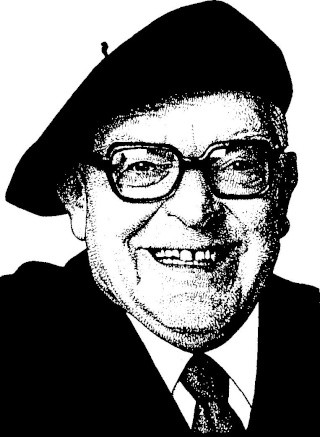 « Un âge historique, celui de la Renaissance, est en train de se désagréger. L’Europe est désormais impuissante à assumer le destin qui fut le sien durant des siècles. Nous assistons à la fin de la première civilisation de caractère universel que le monde ait connu ».
« Un âge historique, celui de la Renaissance, est en train de se désagréger. L’Europe est désormais impuissante à assumer le destin qui fut le sien durant des siècles. Nous assistons à la fin de la première civilisation de caractère universel que le monde ait connu ».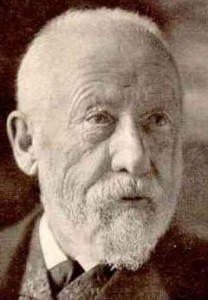 Sarebbe difficile sopravalutare l’importanza del padre dello storicismo, Wilhelm Dilthey, nel panorama della filosofia del Novecento. Il suo influsso, diretto o indiretto, si propaga in almeno quattro direzioni principali: quella dello storicismo tedesco, i cui massimi esponenti sono stati Ernst Troeltsch e Friedrich Meinecke; quella della sociologia, rappresentata da
Sarebbe difficile sopravalutare l’importanza del padre dello storicismo, Wilhelm Dilthey, nel panorama della filosofia del Novecento. Il suo influsso, diretto o indiretto, si propaga in almeno quattro direzioni principali: quella dello storicismo tedesco, i cui massimi esponenti sono stati Ernst Troeltsch e Friedrich Meinecke; quella della sociologia, rappresentata da 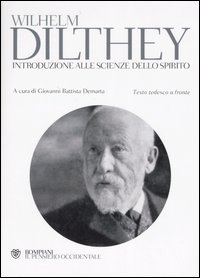
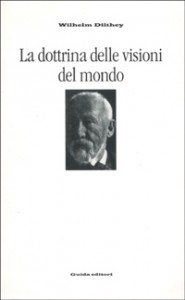
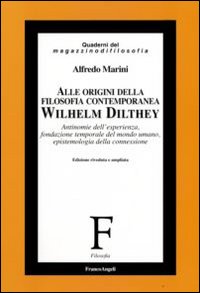




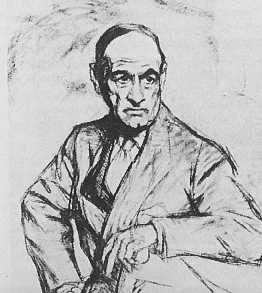 Sans doute le grand romancier trouva-t-il aussi dans le livre du philosophe, comme le remarque José Luis Goyenna dans son intéressante (quoique pleine de fautes) préface, en plus d'images étonnantes bien propres à enthousiasmer l'écrivain, une authentique philosophie de la liberté comme accomplissement métaphysique du moi qui, à la différence de celle de Sartre qualifiée par l'auteur d'Ultramarine de «pensée de seconde main» (2), ne se dépêcherait pas bien vite de déposer aux pieds de l'idole le fardeau trop pesant, enchaînant ainsi la liberté à la seule discipline stupide des masses. Tout lecteur de La révolte des masses aime je crois, en tout premier lieu, l'écriture de ce livre érudit, pressé, menaçant, parfois prodigieusement lucide et même, osons ce mot tombé dans l'ornière journalistique, prophétique.
Sans doute le grand romancier trouva-t-il aussi dans le livre du philosophe, comme le remarque José Luis Goyenna dans son intéressante (quoique pleine de fautes) préface, en plus d'images étonnantes bien propres à enthousiasmer l'écrivain, une authentique philosophie de la liberté comme accomplissement métaphysique du moi qui, à la différence de celle de Sartre qualifiée par l'auteur d'Ultramarine de «pensée de seconde main» (2), ne se dépêcherait pas bien vite de déposer aux pieds de l'idole le fardeau trop pesant, enchaînant ainsi la liberté à la seule discipline stupide des masses. Tout lecteur de La révolte des masses aime je crois, en tout premier lieu, l'écriture de ce livre érudit, pressé, menaçant, parfois prodigieusement lucide et même, osons ce mot tombé dans l'ornière journalistique, prophétique.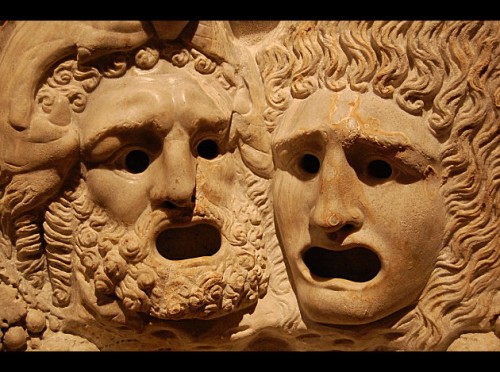
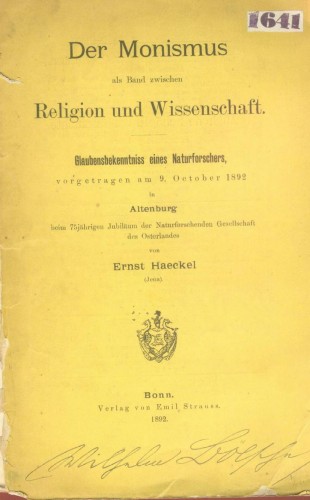 Man muß es so hart sagen: Bruno Wille war weder ein originärer Denker noch ein Philosoph. Damit könnten seine Veröffentlichungen beiseite gelegt und die Person den Lokalhistorikern überlassen werden. Aber die Beschäftigung mit dem Denken Willes ist trotz alledem aufschlußreich. Was seine Schriften erinnernswert macht, ist die Tatsache, daß sie an den weltanschaulichen Auseinandersetzungen der Zeit teilgenommen und so den Zeitgeist gleichzeitig reflektiert, mitgeformt und bekämpft haben. Dabei war Wille Teil einer zeitbedingten Denkströmung, die sich, trotz "fortschrittlicher" Gesinnung, dem Materialismus der Zeit entgegenstellte, wenn auch oft mit zweifelhaften Positionen und Erfolgen. Wille läßt sich aber in einen ewigen Zusammenhang der Philosophie bringen. Er gehört, wenn auch lediglich rezipierend, zu den Bemühungen um eine einheitliche Weltanschauung, die das Denken von Anfang an begleiteten.
Man muß es so hart sagen: Bruno Wille war weder ein originärer Denker noch ein Philosoph. Damit könnten seine Veröffentlichungen beiseite gelegt und die Person den Lokalhistorikern überlassen werden. Aber die Beschäftigung mit dem Denken Willes ist trotz alledem aufschlußreich. Was seine Schriften erinnernswert macht, ist die Tatsache, daß sie an den weltanschaulichen Auseinandersetzungen der Zeit teilgenommen und so den Zeitgeist gleichzeitig reflektiert, mitgeformt und bekämpft haben. Dabei war Wille Teil einer zeitbedingten Denkströmung, die sich, trotz "fortschrittlicher" Gesinnung, dem Materialismus der Zeit entgegenstellte, wenn auch oft mit zweifelhaften Positionen und Erfolgen. Wille läßt sich aber in einen ewigen Zusammenhang der Philosophie bringen. Er gehört, wenn auch lediglich rezipierend, zu den Bemühungen um eine einheitliche Weltanschauung, die das Denken von Anfang an begleiteten. 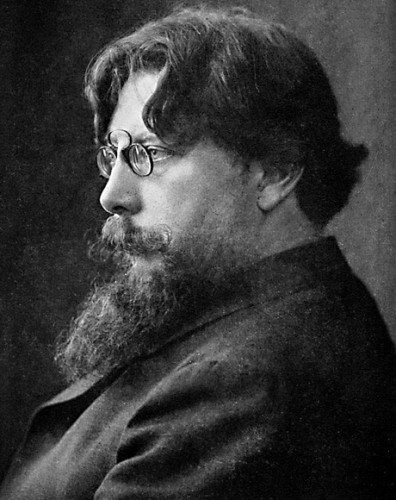 Das Freidenkertum entstand im 17. Jahrhundert in England und gelangte im Laufe des 18. Jahrhunderts auf den europäischen Kontinent, v. a. nach Frankreich. Das ursprüngliche Ziel der Bewegung war die Religionsfreiheit. Das "freie Denken" sollte die Evidenz aller Gegenstände aus der Sache ableiten, nicht aus der Autorität. Erst im "eigentümlichen Freiheitsraum des 19. Jahrhunderts" (Friedrich Heer) vollzog sich innerhalb der Freidenkerbewegung ein Wandel: man organisierte sich, versuchte die ursprünglich elitäre Idee zu popularisieren und so politischen Einfluß auszuüben - man wollte das Denken allgemein von religiösen Vorstellungen befreien. Ein Resultat war, daß die Bezeichnung Freidenker, jetzt zu Recht, synonym für Atheisten gebraucht werden konnte. 1881 wurde der Deutsche Freidenker-Bund (DFB) durch Ludwig Büchner gegründet. 1905 bzw. 1908 folgten sozialdemokratische bzw. proletarische Abspaltungen, die sich 1927 vereinigten. Ihren Höhepunkt hatte die Bewegung am Anfang der 30er Jahre. Am Zweiten Weltkrieg zerbrach der Fortschrittsglaube, mit dem Einflußverlust (und der blutigen Unterdrückung) der Kirchen kam der Hauptfeind abhanden und die Naturwissenschaft stieß v. a. in der Atom- und Astrophysik an Grenzen, die einen weltanschaulichen Materialismus unglaubwürdig machen.
Das Freidenkertum entstand im 17. Jahrhundert in England und gelangte im Laufe des 18. Jahrhunderts auf den europäischen Kontinent, v. a. nach Frankreich. Das ursprüngliche Ziel der Bewegung war die Religionsfreiheit. Das "freie Denken" sollte die Evidenz aller Gegenstände aus der Sache ableiten, nicht aus der Autorität. Erst im "eigentümlichen Freiheitsraum des 19. Jahrhunderts" (Friedrich Heer) vollzog sich innerhalb der Freidenkerbewegung ein Wandel: man organisierte sich, versuchte die ursprünglich elitäre Idee zu popularisieren und so politischen Einfluß auszuüben - man wollte das Denken allgemein von religiösen Vorstellungen befreien. Ein Resultat war, daß die Bezeichnung Freidenker, jetzt zu Recht, synonym für Atheisten gebraucht werden konnte. 1881 wurde der Deutsche Freidenker-Bund (DFB) durch Ludwig Büchner gegründet. 1905 bzw. 1908 folgten sozialdemokratische bzw. proletarische Abspaltungen, die sich 1927 vereinigten. Ihren Höhepunkt hatte die Bewegung am Anfang der 30er Jahre. Am Zweiten Weltkrieg zerbrach der Fortschrittsglaube, mit dem Einflußverlust (und der blutigen Unterdrückung) der Kirchen kam der Hauptfeind abhanden und die Naturwissenschaft stieß v. a. in der Atom- und Astrophysik an Grenzen, die einen weltanschaulichen Materialismus unglaubwürdig machen.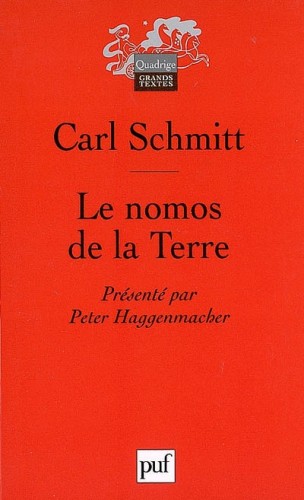 A recent study points to
A recent study points to  Documents which have circulated in connection with the Fay/Jones and Taguba Reports made clear that following the issuance of high-level legal advice outside normal Department of Defense channels, command authorities in Iraq no longer considered the Geneva Conventions to restrain them in their handling of detainees. Internal email traffic among military intelligence units is consistent: Once you label the insurgent detainees as “terrorists,” “they have no rights, Geneva or otherwise.” It seems highly improbable that officers carefully trained in the Geneva rules would suddenly discard them on their own initiative. To the contrary, it is reasonably clear that instructions to that effect were transmitted from a very high source. The Yoo memoranda are critical to understanding what happened, and the March 14, 2003 combined with the initial OLC advice concerning treatment of insurgents in Iraq are likely the most significant pieces of the puzzle not yet in place.
Documents which have circulated in connection with the Fay/Jones and Taguba Reports made clear that following the issuance of high-level legal advice outside normal Department of Defense channels, command authorities in Iraq no longer considered the Geneva Conventions to restrain them in their handling of detainees. Internal email traffic among military intelligence units is consistent: Once you label the insurgent detainees as “terrorists,” “they have no rights, Geneva or otherwise.” It seems highly improbable that officers carefully trained in the Geneva rules would suddenly discard them on their own initiative. To the contrary, it is reasonably clear that instructions to that effect were transmitted from a very high source. The Yoo memoranda are critical to understanding what happened, and the March 14, 2003 combined with the initial OLC advice concerning treatment of insurgents in Iraq are likely the most significant pieces of the puzzle not yet in place. Die moderne Kultur, so klagte einst der italienische Philosoph Julius Evola, beschränke sich nicht darauf, „die aktivistische Orientierung des Lebens abzuspiegeln“. Sie peitsche den menschlichen Aktivismus sogar noch auf, weil sie in ihm etwas sehe, „was sein soll, weil es gut ist, so zu sein“. Und er stellte fest, man sei heute an einem Punkt angelangt, „wo für diejenigen, die noch nicht ganz jene antiken Überlieferungen vergessen haben, auf denen unser wahrer Geistesadel beruhte, sich eine genaue Rechenschaftsablegung über die Lage unter Beziehung eines überlegenen Gesichtspunktes gebieterisch aufdrängt. Unsere ,moderne’ Welt erkennt nur mehr die zeitverhaftete Wirklichkeit an.
Die moderne Kultur, so klagte einst der italienische Philosoph Julius Evola, beschränke sich nicht darauf, „die aktivistische Orientierung des Lebens abzuspiegeln“. Sie peitsche den menschlichen Aktivismus sogar noch auf, weil sie in ihm etwas sehe, „was sein soll, weil es gut ist, so zu sein“. Und er stellte fest, man sei heute an einem Punkt angelangt, „wo für diejenigen, die noch nicht ganz jene antiken Überlieferungen vergessen haben, auf denen unser wahrer Geistesadel beruhte, sich eine genaue Rechenschaftsablegung über die Lage unter Beziehung eines überlegenen Gesichtspunktes gebieterisch aufdrängt. Unsere ,moderne’ Welt erkennt nur mehr die zeitverhaftete Wirklichkeit an.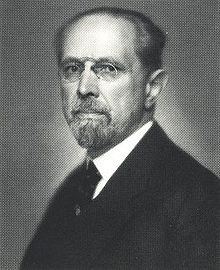 La noticia del apresurado y dichoso financiero yanqui, nos trae al recuerdo la figura del gran economista alemán profesor Werner Sombart, que ejerció docencia, justamente sonada, como profesor de Economía Política, en la Universidad de Berlín, y cuya obra es una verdadera pena que aun no haya sido traducida —que sepamos— al castellano.
La noticia del apresurado y dichoso financiero yanqui, nos trae al recuerdo la figura del gran economista alemán profesor Werner Sombart, que ejerció docencia, justamente sonada, como profesor de Economía Política, en la Universidad de Berlín, y cuya obra es una verdadera pena que aun no haya sido traducida —que sepamos— al castellano.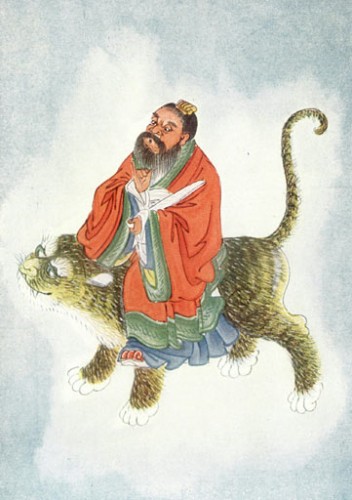
 In a 1913 letter D. H. Lawrence writes that “it is the problem of to-day, the establishment of a new relation, or the readjustment of the old one, between men and women.” Lawrence’s views about relations between the sexes, and about sex differences are perhaps his most controversial – and they have frequently been misrepresented. But before we delve into those views, let us ask why it should be the case that establishing a new relation between men and women is “the problem of to-day.” The reason is fairly obvious. The species divides itself into male and female, reproduces itself thereby, and the overwhelming majority of human beings seek their fulfillment in a relationship to the opposite sex. If relations between the sexes have somehow been crippled—as Lawrence believes they have been—then this is a catastrophe. It is hard to imagine a greater, more pressing problem.
In a 1913 letter D. H. Lawrence writes that “it is the problem of to-day, the establishment of a new relation, or the readjustment of the old one, between men and women.” Lawrence’s views about relations between the sexes, and about sex differences are perhaps his most controversial – and they have frequently been misrepresented. But before we delve into those views, let us ask why it should be the case that establishing a new relation between men and women is “the problem of to-day.” The reason is fairly obvious. The species divides itself into male and female, reproduces itself thereby, and the overwhelming majority of human beings seek their fulfillment in a relationship to the opposite sex. If relations between the sexes have somehow been crippled—as Lawrence believes they have been—then this is a catastrophe. It is hard to imagine a greater, more pressing problem. In Fantasia of the Unconscious, Lawrence tells us “The blood-consciousness and the blood-passion is the very source and origin of us. Not that we can stay at the source. Nor even make a goal of the source, as Freud does. The business of living is to travel away from the source. But you must start every single day fresh from the source. You must rise every day afresh out of the dark sea of the blood.” Lawrence believes that men yearn for purposive, creative activity, which involves moving away from the source. However, the energy and inspiration for purposive activity is drawn from the source, and so there is a complementary movement back towards it.
In Fantasia of the Unconscious, Lawrence tells us “The blood-consciousness and the blood-passion is the very source and origin of us. Not that we can stay at the source. Nor even make a goal of the source, as Freud does. The business of living is to travel away from the source. But you must start every single day fresh from the source. You must rise every day afresh out of the dark sea of the blood.” Lawrence believes that men yearn for purposive, creative activity, which involves moving away from the source. However, the energy and inspiration for purposive activity is drawn from the source, and so there is a complementary movement back towards it. Having a woman is therefore a necessary but not a sufficient condition for male happiness. In addition to a woman, he must have a purpose. Women, on the other hand, do not require a purpose beyond the home and the family in order to be happy. This is another of those claims that will rankle some, so let us consider two important points about what Lawrence has said. First, he is speaking of what he believes the typical woman is like, just as he is speaking of the typical man. There are at least a few exceptions to just about every generalization. Second, we must ask an absolutely crucial question of those who regard such claims as demeaning women: why is being occupied with home and family lesser than having a purpose (e.g., a career) outside the home? The argument could be made—and I think Lawrence would be sympathetic to this—that the traditional female role of making a home and raising children is just as important and possibly more important than the male activities pursued outside the home. Again, much of contemporary feminism sees things from a typically male point of view, and denigrates women who choose motherhood rather than one of the many meaningless, ulcer-producing careers that have long been the province of men.
Having a woman is therefore a necessary but not a sufficient condition for male happiness. In addition to a woman, he must have a purpose. Women, on the other hand, do not require a purpose beyond the home and the family in order to be happy. This is another of those claims that will rankle some, so let us consider two important points about what Lawrence has said. First, he is speaking of what he believes the typical woman is like, just as he is speaking of the typical man. There are at least a few exceptions to just about every generalization. Second, we must ask an absolutely crucial question of those who regard such claims as demeaning women: why is being occupied with home and family lesser than having a purpose (e.g., a career) outside the home? The argument could be made—and I think Lawrence would be sympathetic to this—that the traditional female role of making a home and raising children is just as important and possibly more important than the male activities pursued outside the home. Again, much of contemporary feminism sees things from a typically male point of view, and denigrates women who choose motherhood rather than one of the many meaningless, ulcer-producing careers that have long been the province of men. What Lawrence says here is applicable to both men and women. “To be oneself” in the true sense means to answer to the call of the deepest self. We can only achieve our “fullness of being” if we do so. The mind invents all manner of goals and projects and ideals to be pursued, but ultimately all that we do produces only frustration and emptiness if we act in a way that does not fundamentally satisfy the needs of our deepest, pre-mental, bodily nature.
What Lawrence says here is applicable to both men and women. “To be oneself” in the true sense means to answer to the call of the deepest self. We can only achieve our “fullness of being” if we do so. The mind invents all manner of goals and projects and ideals to be pursued, but ultimately all that we do produces only frustration and emptiness if we act in a way that does not fundamentally satisfy the needs of our deepest, pre-mental, bodily nature.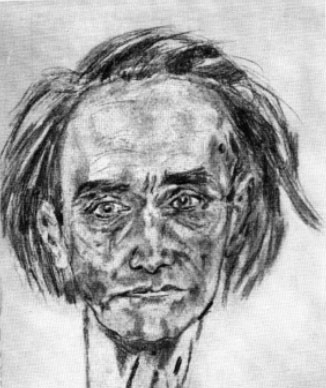
 è in fondo la stessa visione di certo cristianesimo (e non solo) che svaluta la terra e propone prospettive salvifiche future (è lo stesso meccanismo che nella testualità promette un senso a venire e nello stesso momento instaura e salva una oscurità strategica?).
è in fondo la stessa visione di certo cristianesimo (e non solo) che svaluta la terra e propone prospettive salvifiche future (è lo stesso meccanismo che nella testualità promette un senso a venire e nello stesso momento instaura e salva una oscurità strategica?). Der existenzielle Ernst der Lage macht ... den Diskurs nicht nur unmöglich, sondern auch überflüssig, es sei denn, einer der Feinde zeigt sich geneigt, seine Identität (teilweise) aufzugeben bzw. die Objektivierung seiner Entscheidung zurückzunehmen.... Diesen Grundgegebenheiten kann niemand entgehen, so sehr er auch die Notwendigkeit des ’vernünftigen' Diskurses hervorhebt. Selbst dieser Akt hat aber einen polemischen Sinn, er... drückt... die Machtansprüche derjenigen aus, die die eigene starke Seite im Debattieren und Argumentieren erblicken, d.h. er artikuliert in sublimierter Form die Hoffnungen der Kleinbürger des Geistes, sie könnten härteren Kampfformen ausweichen, denen sie nicht gewachsen sind und in denen ihre Stimme und Existenz völlig bedeutungslos wäre.
Der existenzielle Ernst der Lage macht ... den Diskurs nicht nur unmöglich, sondern auch überflüssig, es sei denn, einer der Feinde zeigt sich geneigt, seine Identität (teilweise) aufzugeben bzw. die Objektivierung seiner Entscheidung zurückzunehmen.... Diesen Grundgegebenheiten kann niemand entgehen, so sehr er auch die Notwendigkeit des ’vernünftigen' Diskurses hervorhebt. Selbst dieser Akt hat aber einen polemischen Sinn, er... drückt... die Machtansprüche derjenigen aus, die die eigene starke Seite im Debattieren und Argumentieren erblicken, d.h. er artikuliert in sublimierter Form die Hoffnungen der Kleinbürger des Geistes, sie könnten härteren Kampfformen ausweichen, denen sie nicht gewachsen sind und in denen ihre Stimme und Existenz völlig bedeutungslos wäre.

Robert STEUCKERS (1987):
Postmodern Challenges:
Between Faust & Narcissus, Part 1
In Oswald Spengler’s terms, our European culture is the product of a “pseudomorphosis,” i.e., of the grafting of an alien mentality upon our indigenous, original, and innate mentality. Spengler calls the innate mentality “the Faustian.”
The Confrontation of the Innate and the Acquired
The alien mentality is the theocentric, “magical” outlook born in the Near East. For the magical mind, the ego bows respectfully before the divine substance like a slave before his master. Within the framework of this religiosity, the individual lets himself be guided by the divine force that he absorbs through baptism or initiation.
There is nothing comparable for the old-European Faustian spirit, says Spengler. Homo europeanus, in spite of the magic/Christian varnish covering our thinking, has a voluntarist and anthropocentric religiosity. For us, the good is not to allow oneself to be guided passively by God, but rather to affirm and carry out our own will. “To be able to choose,” this is the ultimate basis of the indigenous European religiosity. In medieval Christianity, this voluntarist religiosity shows through, piercing the crust of the imported “magism” of the Middle East.
Around the year 1000, this dynamic voluntarism appears gradually in art and literary epics, coupled with a sense of infinite space within which the Faustian self would, and can, expand. Thus to the concept of a closed space, in which the self finds itself locked, is opposed the concept of an infinite space, into which an adventurous self sallies forth.
From the “Closed” World to the Infinite Universe
According to the American philosopher Benjamin Nelson,[1] the old Hellenic sense of physis (nature), with all the dynamism this implies, triumphed at the end of the 13th century, thanks to Averroism, which transmitted the empirical wisdom of the Greeks (and of Aristotle in particular) to the West. Gradually, Europe passed from the “closed world” to the infinite universe. Empiricism and nominalism supplanted a Scholasticism that had been entirely discursive, self-referential, and self-enclosed. The Renaissance, following Copernicus and Bruno (the tragic martyr of Campo dei Fiori), renounced geocentrism, making it safe to proclaim that the universe is infinite, an essentially Faustian intuition according to Spengler’s criteria.
In the second volume of his History of Western Thought, Jean-François Revel, who formerly officiated at Point and unfortunately illustrated the Americanocentric occidentalist ideology, writes quite pertinently: “It is easy to understand that the eternity and infinity of the universe announced by Bruno could have had, on the cultivated men of the time, the traumatizing effect of passing from life in the womb into the vast and cruel draft of an icy and unbounded vortex.”[2]
The “magic” fear, the anguish caused by the collapse of the comforting certitude of geocentrism, caused the cruel death of Bruno, that would become, all told, a terrifying apotheosis . . . Nothing could ever refute heliocentrism, or the theory of the infinitude of sidereal spaces. Pascal would say, in resignation, with the accent of regret: “The eternal silence of these infinite spaces frightens me.”
From Theocratic Logos to Fixed Reason
To replace magical thought’s “theocratic logos,” the growing and triumphant bourgeois thought would elaborate a thought centered on reason, an abstract reason before which it is necessary to bow, like the Near Easterner bows before his god. The “bourgeois” student of this “petty little reason,” virtuous and calculating, anxious to suppress the impulses of his soul or his spirit, thus finds a comfortable finitude, a closed off and secured space. The rationalism of this virtuous human type is not the adventurous, audacious, ascetic, and creative rationalism described by Max Weber[3] which educates the inner man precisely to face the infinitude affirmed by Giordano Bruno.[4]
From the end of the Renaissance, Two Modernities are Juxtaposed
The petty rationalism denounced by Sombart[5] dominates the cities by rigidifying political thought, by restricting constructive activist impulses. The genuinely Faustian and conquering rationalism described by Max Weber would propel European humanity outside its initial territorial limits, giving the main impulse to all sciences of the concrete.
From the end of the Renaissance, we thus discover, on the one hand, a rigid and moralistic modernity, without vitality, and, on the other hand, an adventurous, conquering, creative modernity, just as we are today on the threshold of a soft post-modernity or of a vibrant post-modernity, self-assured and potentially innovative. By recognizing the ambiguity of the terms “rationalism,” “rationality,” “modernity,” and “post-modernity,” we enter one level of the domain of political ideologies, even militant Weltanschauungen.
The rationalization glutted with moral arrogance described by Sombart in his famous portrait of the “bourgeois” generates the soft and sentimental messianisms, the great tranquillizing narratives of contemporary ideologies. The conquering rationalization described by Max Weber causes the great scientific discoveries and the methodical spirit, the ingenious refinement of the conduct of life and increasing mastery of the external world.
This conquering rationalization also has its dark side: It disenchants the world, drains it, excessively schematizes it. While specializing in one or another domain of technology, science, or the spirit, while being totally invested there, the “Faustians” of Europe and North America often lead to a leveling of values, a relativism that tends to mediocrity because it makes us lose the feeling of the sublime, of the telluric mystique, and increasingly isolates individuals. In our century, the rationality lauded by Weber, if positive at the beginning, collapsed into quantitativist and mechanized Americanism that instinctively led by way of compensation, to the spiritual supplement of religious charlatanism combining the most delirious proselytism and sniveling religiosity.
Such is the fate of “Faustianism” when severed from its mythic foundations, of its memory of the most ancient, of its deepest and most fertile soil. This caesura is unquestionably the result of pseudomorphosis, the “magian” graft on the Faustian/European trunk, a graft that failed. “Magianism” could not immobilize the perpetual Faustian drive; it has—and this is more dangerous—cut it off from its myths and memory, condemned it to sterility and dessication, as noted by Valéry, Rilke, Duhamel, Céline, Drieu, Morand, Maurois, Heidegger, or Abellio.
Conquering Rationality, Moralizing Rationality, the Dialectic of Enlightenment, the “Grand Narratives” of Lyotard
Conquering rationality, if it is torn away from its founding myths, from its ethno-identitarian ground, its Indo-European matrix, falls—even after assaults that are impetuous, inert, emptied of substance—into the snares of calculating petty rationalism and into the callow ideology of the “Grand Narratives” of rationalism and the end of ideology. For Jean-François Lyotard, “modernity” in Europe is essentially the “Grand Narrative” of the Enlightenment, in which the heroes of knowledge work peacefully and morally toward an ethico-political happy ending: universal peace, where no antagonism will remain.[6] The “modernity” of Lyotard corresponds to the famous “Dialectic of the Enlightenment” of Horkheimer and Adorno, leaders of famous “Frankfurt School.”[7] In their optic, the work of the man of science or the action of the politician, must be submitted to a rational reason, an ethical corpus, a fixed and immutable moral authority, to a catechism that slows down their drive, that limits their Faustian ardor. For Lyotard, the end of modernity, thus the advent of “post-modernity,” is incredulity—progressive, cunning, fatalistic, ironic, mocking—with regard to this metanarrative.
Incredulity also means a possible return of the Dionysian, the irrational, the carnal, the turbid, and disconcerting areas of the human soul revealed by Bataille or Caillois, as envisaged and hoped by professor Maffesoli,[8] of the University of Strasbourg, and the German Bergfleth,[9] a young nonconformist philosopher; that is to say, it is equally possible that we will see a return of the Faustian spirit, a spirit comparable with that which bequeathed us the blazing Gothic, of a conquering rationality which has reconnected with its old European dynamic mythology, as Guillaume Faye explains in Europe and Modernity.[10]
Notes
1. Benjamin Nelson, Der Ursprung der Moderne, Vergleichende Studien zum Zivilisationsprozess [The Origin of Modernity: Comparative Studies of the Civilization Process] (Frankfurt am Main: Suhrkamp, 1986).
2. Jean-François Revel, Histoire de la pensée occidentale [History of Western Thought], vol. 2, La philosophie pendant la science (XVe, XVIe et XVIIe siècles) [Philosophy and Science (Fifteenth-, Sixteenth-, and Seventeenth-Centuries)] (Paris: Stock, 1970). Cf. also the masterwork of Alexandre Koyré, From the Closed World to the Infinite Universe (Baltimore: Johns Hopkins University Press, 1957).
3. Cf. Julien Freund, Max Weber (Paris: P.U.F., 1969).
4. Paul-Henri Michel, La cosmologie de Giordano Bruno [The Cosmology of Giordano Bruno] (Paris: Hermann, 1962).
5. Cf. essentially: Werner Sombart, Le Bourgeois. Contribution à l’histoire morale et intellectuelle de l’homme économique moderne [The Bourgeois: Contribution to the Moral and Intellectual History of Modern Economic Man] (Paris: Payot, 1966).
6. Jean-François Lyotard, The Postmodern Condition: A Report on Knowledge, trans. Geoff Bennington and Brian Massumi. (Minneapolis: University of Minnesota Press, 1984).
7. Max Horkheimer and Theodor Adomo, The Dialectic of Enlightenment, trans. Edmund Jephcott (Stanford: Stanford University Press, 2002). Cf. also Pierre Zima, L’École de Francfort. Dialectique de la particularité [The Frankfurt School: Dialectic of Particularity] (Paris: Éditions Universitaires, 1974). Michel Crozon, “Interroger Horkheimer” [“Interrogating Horkheimer”] and Arno Victor Nielsen, “Adorno, le travail artistique de la raison” [“Adorno: The Artistic Work of Reason”], Esprit, May 1978.
8. Cf. chiefly Michel Maffesoli, L’ombre de Dionysos: Contribution à une sociologie de l’orgie [The Shadow of Dionysus: Contribution to a Sociology of the Orgy] (Méridiens, 1982). Pierre Brader, “Michel Maffesoli: saluons le grand retour de Dionysos” [Michel Maffesoli: Let us Greet the Great return of Dionysos], Magazine-Hebdo no. 54 (September 21, 1984).
9. Cf. Gerd Bergfleth et al., Zur Kritik der Palavernden Aufklärung [Toward a Critique of Palavering Reason] (Munich: Matthes & Seitz, 1984). In this remarkable little anthology, Bergfleth published four texts deadly to the “moderno-Frankfurtist” routine: (1) “Zehn Thesen zur Vernunftkritik” [“Ten Theses on the Critique of Reason”]; (2) “Der geschundene Marsyas” [“The Abuse of Marsyas”]; (3) “Über linke Ironie” [“On Leftist Irony”]; (4) “Die zynische Aufklärung” [“The Cynical Enlightnement”]. Cf. also R. Steuckers, “G. Bergfleth: enfant terrible de la scène philosophique allemande” [“G. Bergfleth: enfant terrible of the German philosophical scene”], Vouloir no. 27 (March 1986). In the same issue, see also M. Kamp, “Bergfleth: critique de la raison palabrante” [“Bergfleth: Critique of Palavering Reason”] and “Une apologie de la révolte contre les programmes insipides de la révolution conformiste” [“An Apology for the Revolt against the Insipid Programs of the Conformist Revolution”]. See also M. Froissard, “Révolte, irrationnel, cosmicité et . . . pseudo-antisémitisme,” [“Revolt, irrationality, cosmicity and . . . pseudo-anti-semitism”], Vouloir nos. 40–42 (July–August 1987).
10. Guillaume Faye, Europe et Modernité [Europe and Modernity] (Méry/Liège: Eurograf, 1985).
Postmodern Challenges:
Between Faust & Narcissus, Part 2
Once the Enlightenment metanarrative was established—“encysted”—in the Western mind, the great secular ideologies progressively appeared: liberalism, with its idolatry of the “invisible hand,”[1] and Marxism, with its strong determinism and metaphysics of history, contested at the dawn of the 20th century by Georges Sorel, the most sublime figure of European militant socialism.[2] Following Giorgio Locchi[3]—who occasionally calls the metanarrative “ideology” or “science”—we think that this complex “metanarrative/ideology/science” no longer rules by consensus but by constraint, inasmuch as there is muted resistance (especially in art and music[4]) or a general disuse of the metanarrative as one of the tools of legitimation.
The liberal-Enlightenment metanarrative persists by dint of force and propaganda. But in the sphere of thought, poetry, music, art, or letters, this metanarrative says and inspires nothing. It has not moved a great mind for 100 or 150 years. Already at the end of the 19th century, literary modernism expressed a diversity of languages, a heterogeneity of elements, a kind of disordered chaos that the “physiologist” Nietzsche analyzed[5] and that Hugo von Hoffmannstahl called die Welt der Bezuge (the world of relations).
These omnipresent interrelations and overdeterminations show us that the world is not explained by a simple, neat and tidy story, nor does it submit itself to the rule of a disincarnated moral authority. Better: they show us that our cities, our people, cannot express all their vital potentialities within the framework of an ideology given and instituted once and for all for everyone, nor can we indefinitely preserve the resulting institutions (the doctrinal body derived from the “metanarrative of the Enlightenment”).
The anachronistic presence of the metanarrative constitutes a brake on the development of our continent in all fields: science (data-processing and biotechnology[6]), economics (the support of liberal dogmas within the EEC), military (the fetishism of a bipolar world and servility toward the United States, paradoxically an economic enemy), cultural (media bludgeoning in favor of a cosmopolitanism that eliminates Faustian specificity and aims at the advent of a large convivial global village, run on the principles of the “cold society” in the manner of the Bororos dear to Lévi-Strauss[7]).
The Rejection of Neo-Ruralism, Neo-Pastoralism . . .
The confused disorder of literary modernism at the end of the 19th century had a positive aspect: its role was to be the magma that, gradually, becomes the creator of a new Faustian assault.[8] It is Weimar—specifically, the Weimar-arena of the creative and fertile confrontation of expressionism,[9] neo-Marxism, and the “conservative revolution”[10]—that bequeathed us, with Ernst Jünger, an idea of “post-metanarrative” modernity (or post-modernity, if one calls “modernity” the Dialectic of the Enlightenment, subsequently theorized by the Frankfurt School). Modernism, with the confusion it inaugurates, due to the progressive abandonment the pseudo-science of the Enlightenment, corresponds somewhat to the nihilism observed by Nietzsche. Nihilism must be surmounted, exceeded, but not by a sentimental return, however denied, to a completed past. Nihilism is not surpassed by theatrical Wagnerism, Nietzsche fulminated, just as today the foundering of the Marxist “Grand Narrative” is not surpassed by a pseudo-rustic neoprimitivism.[11]
In Jünger—the Jünger of In Storms of Steel, The Worker, and Eumeswil—one finds no reference to the mysticism of the soil: only a sober admiration for the perennialness of the peasant, indifferent to historical upheavals. Jünger tells us of the need for balance: if there is a total refusal of the rural, of the soil, of the stabilizing dimension of Heimat, constructivist Faustian futurism will no longer have a base, a point of departure, a fallback option. On the other hand, if the accent is placed too much on the initial base, the launching point, on the ecological niche that gives rise to the Faustian people, then they are wrapped in a cocoon and deprived of universal influence, rendered blind to the call of the world, prevented from springing towards reality in all its plenitude, the “exotic” included. The timid return to the homeland robs Faustianism of its force of diffusion and relegates its “human vessels” to the level of the “eternal ahistoric peasants” described by Spengler and Eliade.[12] Balance consists in drawing in (from the depths of the original soil) and diffusing out (towards the outside world).
In spite of all nostalgia for the “organic,” rural, or pastoral—in spite of the serene, idyllic, aesthetic beauty that recommend Horace or Virgil—Technology and Work are from now on the essences of our post-nihilist world. Nothing escapes any longer from technology, technicality, mechanics, or the machine: neither the peasant who plows with his tractor nor the priest who plugs in a microphone to give more impact to his homily.
The era of “Technology”
Technology mobilizes totally (Total Mobilmachung) and thrusts the individual into an unsettling infinitude where we are nothing more than interchangeable cogs. The machine gun, notes the warrior Jünger, mows down the brave and the cowardly with perfect equality, as in the total material war inaugurated in 1917 in the tank battles of the French front. The Faustian “Ego” loses its intraversion and drowns in a ceaseless vortex of activity. This Ego, having fashioned the stone lacework and spires of the flamboyant Gothic, has fallen into American quantitativism or, confused and hesitant, has embraced the 20th century’s flood of information, its avalanche of concrete facts. It was our nihilism, our frozen indecision due to an exacerbated subjectivism, that mired us in the messy mud of facts.
By crossing the “line,” as Heidegger and Jünger say,[13] the Faustian monad (about which Leibniz[14] spoke) cancels its subjectivism and finds pure power, pure dynamism, in the universe of Technology. With the Jüngerian approach, the circle is closed again: as the closed universe of “magism” was replaced by the inauthentic little world of the bourgeois—sedentary, timid, embalmed in his utilitarian sphere—so the dynamic “Faustian” universe is replaced with a Technological arena, stripped this time of all subjectivism.
Jüngerian Technology sweeps away the false modernity of the Enlightenment metanarrative, the hesitation of late 19th century literary modernism, and the trompe-l’oeil of Wagnerism and neo-pastoralism. But this Jüngerian modernity, perpetually misunderstood since the publication of Der Arbeiter [The Worker] in 1932, remains a dead letter.
Notes
1. On the theological foundation of the doctrine of the “invisible hand” see Hans Albert, “Modell-Platonismus. Der neoklassische Stil des ökonomischen Denkens in kritischer Beleuchtung” [“Model Platonism: The Neoclassical Style of Economic Thought in Critical Elucidation”], in Ernst Topitsch, ed., Logik der Sozialwissenschaften [Logic of Social Science] (Köln/Berlin: Kiepenheuer & Witsch, 1971).
2. There is abundant French literature on Georges Sorel. Nevertheless, it is deplorable that a biography and analysis as valuable as Michael Freund’s has not been translated: Michael Freund, Georges Sorel, Der revolutionäre Konservatismus [Georges Sorel: Revolutionary Conservatism] (Frankfurt a.M.: Vittorio Klostermann, 1972).
3. Cf. G. Locchi, “Histoire et société: critique de Lévi-Strauss” [“History and Society: Critique of Lévi-Strauss”], Nouvelle Ecole, no. 17 (March 1972) and “L’histoire” [“History”], Nouvelle Ecole, nos. 27–28 (January 1976).
4. Cf. G. Locchi, “L’idée de la musique’ et le temps de l’histoire” [“The ‘Idea of Music’ and the Times of History”], Nouvelle Ecole, no. 30 (November 1978) and Vincent Samson, “Musique, métaphysique et destin” [“Music, Metaphysics, and Destiny”], Orientations, no. 9 (September 1987).
5. Cf. Helmut Pfotenhauer, Die Kunst als Physiologie: Nietzsches äesthetische Theorie und literarische Produktion [Art as Physiology: Nietzsche’s Aesthetic Theory and Literary Production] (Stuttgart: J. B. Metzler, 1985). Cf. on Pfotenhauer’s book: Robert Steuckers, “Regards nouveaux sur Nietzsche” [“New Views of Nietzsche”], Orientations, no. 9.
6. Biotechnology and the most recent biocybernetic innovations, when applied to the operation of human society, fundamentally call into question the mechanistic theoretical foundations of the “Grand Narrative” of the Enlightenment. Less rigid, more flexible laws, because adapted to the deep drives of human psychology and physiology, would restore a dynamism to our societies and put them in tune with technological innovations. The Grand Narrative—which is always around, in spite of its anachronism—blocks the evolution of our societies; Habermas’ thought, which categorically refuses to fall in step with the epistemological discoveries of Konrad Lorenz, for example, illustrates perfectly the genuinely reactionary rigidity of the neo-Enlightenment in its Frankfurtist and current neo-liberal derivations. To understand the shift that is taking place regardless of the liberal-Frankfurtist reaction, see the work of the German bio-cybernetician Frederic Vester: (1) Unsere Welt—ein vernetztes System, dtv, no. l0,118, 2nd ed. (München, 1983) and (2) Neuland des Denkens. Vom technokratischen zum kybernetischen Zeitalter (Stuttgart: DVA, 1980). The restoration of holist (ganzheitlich) social thought by modern biology is discussed, most notably, in Gilbert Probst, Selbst-Organisation, Ordnungsprozesse in sozialen Systemen aus ganzheitlicher Sicht (Berlin: Paul Parey, 1987).
7. G. Locchi, “L’idée de la musique’ et le temps de l’histoire.”
8. To tackle the question of the literary modernism in the 19th century, see: M. Bradbury, J. McFarlane, eds., Modernism 1890–1930 (Harmondsworth: Penguin, 1976).
9. Cf. Paul Raabe, ed., Expressionismus. Der Kampf um eine literarische Bewegung (Zürich: Arche, 1987)—A useful anthology of the principal expressionist manifestos.
10. Armin Mohler, La Révolution Conservatrice en Allemagne, 1918–1932 (Puiseaux: Pardès, 1993). See mainly text A3 entitled “Leitbilder” (“Guiding Ideas”).
11. Cf. Gérard Raulet, “Mantism and the Post-Modern Conditions” and Claude Karnoouh, “The Lost Paradise of Regionalism: The Crisis of Post-Modernity in France,” Telos, no. 67 (March 1986).
12. Cf. Oswald Spengler, The Decline of the West, 2 vols., trans. Charles Francis Atkinson (New York: Knopf, 1926) for the definition of the “ahistorical peasant” see vol. 2. Cf. Mircea Eliade, The Sacred and the Profane: The Nature of Religion, trans. Willard R. Trask (San Diego: Harcourt, 1959). For the place of this vision of the “peasant” in the contemporary controversy regarding neo-paganism, see: Richard Faber, “Einleitung: ‘Pagan’ und Neo-Paganismus. Versuch einer Begriffsklärung,” in Richard Faber and Renate Schlesier, Die Restauration der Götter: Antike Religion und Neo-Paganismus [The Restoration of the Gods: Ancient Religion and Neo-Paganism] (Würzburg: Königshausen & Neumann, 1986), 10–25. This text was reviewed in French by Robert Steuckers, “Le paganisme vu de Berlin” [“Paganism as Seen in Berlin”], Vouloir no. 28–29, April 1986, pp. 5–7.
13. On the question of the “line” in Jünger and Heidegger, cf. W. Kaempfer, Ernst Jünger, Sammlung Metzler, Band 20l (Stuttgart, Metzler, 1981), pp. 119–29. Cf also J. Evola, “Devant le ‘mur du temps’” [“Before the ‘Wall of Time’”] in Explorations: Hommes et problems [Explorations: Men and Problems], trans. Philippe Baillet (Puiseaux: Pardès, 1989), pp. 183–94. Let us take this opportunity to recall that, contrary to the generally accepted idea, Heidegger does not reject technology in a reactionary manner, nor does he regard it as dangerous in itself. The danger is due to the failure to think of the mystery of its essence, preventing man from returning to a more originary unconcealment and from hearing the call of a more primordial truth. If the age of technology seems to be the final form of the Oblivion of Being, where the anxiety suitable to thought appears as an absence of anxiety in the securing and the objectification of being, it is also from this extreme danger that the possibility of another beginning is thinkable once the metaphysics of subjectivity is completed.
14. To assess the importance of Leibniz in the development of German organic thought, cf. F. M. Barnard, Herder’s Social and Political Thought: From Enlightenment to Nationalism (Oxford: Clarendon Press, 1965), 10–12.
Postmodern Challenges:
Between Faust & Narcissus, Part 3
In 1945, the tone of ideological debate was set by the victorious ideologies. We could choose American liberalism (the ideology of Mr. Babbitt) or Marxism, an allegedly de-bourgeoisfied version of the metanarrative. The Grand Narrative took charge, hunted down any “irrationalist” philosophy or movement,[1] set up a thought police, and finally, by brandishing the bogeyman of rampant barbarism, inaugurated an utterly vacuous era.
Sartre and his fashionable Parisian existentialism must be analyzed in the light of this restoration. Sartre, faithful to his “atheism,” his refusal to privilege one value, did not believe in the foundations of liberalism or Marxism. Ultimately, he did not set up the metanarrative (in its most recent version, the vulgar Marxism of the Communist parties[2]) as a truth but as an “inescapable”categorical imperative for which one must militate if one does not want to be a “bastard,” i.e., one of these contemptible beings who venerate “petrified orders.”[3] It is the whole paradox of Sartreanism: on the one hand, it exhorts us not to adore “petrified orders,” which is properly Faustian, and, on another side, it orders us to “magically” adore a “petrified order” of vulgar Marxism, already unhorsed by Sombart or De Man. Thus in the Fifties, the golden age of Sartreanism, the consensus is indeed a moral constraint, an obligation dictated by increasingly mediatized thought. But a consensus achieved by constraint, by an obligation to believe without discussion, is not an eternal consensus. Hence the contemporary oblivion of Sartreanism, with its excesses and its exaggerations.
The Revolutionary Anti-Humanism of May 1968
With May ’68, the phenomenon of a generation, “humanism,” the current label of the metanarrative, was battered and broken by French interpretations of Nietzsche, Marx, and Heidegger.[4] In the wake of the student revolt, academics and popularizers alike proclaimed humanism a “petite-bourgeois” illusion. Against the West, the geopolitical vessel of the Enlightenment metanarrative, the rebels of ’68 played at mounting the barricades, taking sides, sometimes with a naive romanticism, in all the fights of the 1970s: Spartan Vietnam against American imperialism, Latin-American guerillas (“Ché”), the Basque separatists, the patriotic Irish, or the Palestinians.
Their Faustian feistiness, unable to be expressed though autochthonous models, was transposed toward the exotic: Asia, Arabia, Africa, or India. May ’68, in itself, by its resolute anchorage in Grand Politics, by its guerilla ethos, by its fighting option, in spite of everything took on a far more important dimension than the strained blockage of Sartreanism or the great regression of contemporary neo-liberalism. On the right, Jean Cau, in writing his beautiful book on Che Guevara[5] understood this issue perfectly, whereas the right, which is as fixated on its dogmas and memories as the left, had not wanted to see.
With the generation of ’68—combative and politicized, conscious of the planet’s great economic geopolitical issues—the last historical fires burned in the French public spirit before the great rise of post-history and post-politics represented by the narcissism of contemporary neoliberalism.
The Translation of the Writings of the “Frankfurt School” announces the Advent of Neo-Liberal Narcissism
The first phase of the neo-liberal attack against the political anti-humanism of May ’68 was the rediscovery of the writings of the Frankfurt School: born in Germany before the advent of National Socialism, matured during the California exile of Adorno, Horkheimer, and Marcuse, and set up as an object of veneration in post-war West Germany. In Dialektik der Aufklärung, a small and concise book that is fundamental to understanding the dynamics of our time, Horkheimer and Adorno claim that there are two “reasons” in Western thought that, in the wake of Spengler and Sombart, we are tempted to name “Faustian reason” and “magical reason.” The former, for the two old exiles in California, is the negative pole of the “reason complex” in Western civilization: this reason is purely “instrumental”; it is used to increase the personal power of those who use it. It is scientific reason, the reason that tames the forces of the universe and puts them in the service of a leader or a people, a party or state. Thus, according to Herbert Marcuse, it is Promethean, not Narcissistic/Orphic.[6] For Horkheimer, Adorno, and Marcuse, this is the kind of rationality that Max Weber theorized.
On the other hand, “magical reason,” according to our Spenglerian genealogical terminology, is, broadly speaking, the reason of Lyotard’s metanarrative. It is a moral authority that dictates ethical conduct, allergic to any expression of power, and thus to any manifestation of the essence of politics.[7] In France, the rediscovery of the Horkheimer-Adorno theory of reason near the end of the 1970s inaugurated the era of depoliticization, which, by substituting generalized disconnection for concrete and tangible history, led to the “era of the vacuum” described so well by Grenoble Professor Gilles Lipovetsky.[8] Following the militant effervescence of May ’68 came a generation whose mental attitudes are characterized quite justly by Lipovetsky as apathy, indifference (also to the metanarrative in its crude form), desertion (of the political parties, especially of the Communist Party), desyndicalisation, narcissism, etc. For Lipovetsky, this generalized resignation and abdication constitutes a golden opportunity. It is the guarantee, he says, that violence will recede, and thus no “totalitarianism,” red, black, or brown, will be able to seize power. This psychological easy-goingness, together with a narcissistic indifference to others, constitutes the true “post-modern” age.
There are Various Possible Definitions of “Post-Modernity”
On the other hand, if we perceive—contrary to Lipovetsky’s usage—“modernity” or “modernism” as expressions of the metanarrative, thus as brakes on Faustian energy, post-modernity will necessarily be a return to the political, a rejection of para-magical creationism and anti-political suspicion that emerged after May 68, in the wake of speculations on “instrumental reason” and “objective reason” described by Horkheimer and Adorno.
The complexity of the “post-modern” situation makes it impossible to give one and only one definition of “post-modernity.” There is not one post-modernity that can lay claim to exclusivity. On the threshold of the 21st century, various post-modernities lie fallow, side by side, diverse potential post-modern social models, each based on fundamentally antagonistic values fundamentally antagonistic, primed to clash. These post-modernities differ—in their language or their “look”—from the ideologies that preceded them; they are nevertheless united with the eternal, immemorial, values that lie beneath them. As politics enters the historical sphere through binary confrontations, clashes of opposing clans and the exclusion of minorities, dare to evoke the possible dichotomy of the future: a neo-liberal, Western, American and American-like post-modernity versus a shining Faustian and Nietzschean post-modernity.
The “Moral Generation” & the “Era of the Vacuum”
This neo-liberal post-modernity was proclaimed triumphantly, with Messianic delirium, by Laurent Joffrin in his assessment of the student revolt of December 1986 (Un coup de jeune [A Coup of Youth], Arlea, 1987). For Joffrin, who predicted[9] the death of the hard left, of militant proletarianism, December ’86 is the harbinger of a “moral generation,” combining in one mentality soft leftism, lazy-minded collectivism, and neo-liberal, narcissistic, and post-political selfishness: the social model of this hedonistic society centered on commercial praxis, that Lipovetsky described as the era of the vacuum. A political vacuum, an intellectual vacuum, and a post-historical desert: these are the characteristics of the blocked space, the closed horizon characteristic of contemporary neo-liberalism. This post-modernity constitutes a troubling impediment to the greater Europe that must emerge so that we have a viable future and arrest the slow decay announced by massive unemployment and declining demographics spreading devastation under the wan light of consumerist illusions, the big lies of advertisers, and the neon signs praising the merits of a Japanese photocopier or an American airline.
On the other hand, the post-modernity that rejects the old anti-political metanarrative of the Enlightenment, with its metamorphoses and metastases; that affirms the insolence of a Nietzsche or the metallic ideal of a Jünger; that crosses the “line,” as Heidegger exhorts, leaving behind the sterile dandyism of nihilistic times; the post-modernity that rallies the adventurous to a daring political program concretely implying the rejection of the existing power blocs, the construction of an autarkic Eurocentric economy, while fighting savagely and without concessions against all old-fashioned religions and ideologies, by developing the main axis of a diplomacy independent of Washington; the post-modernity that will carry out this voluntary program and negate the negations of post-history—this post-modernity will have our full adherence.
In this brief essay, I wanted to prove that there is a continuity in the confrontation of the “Faustian” and “magian” mentalities, and that this antagonistic continuity is reflected in the current debate on post-modernities. The American-centered West is the realm of “magianisms,” with its cosmopolitanism and authoritarian sects.[10] Europe, the heiress of a Faustianism much abused by “magian” thought, will reassert herself with a post-modernity that will recapitulate the inexpressible themes, recurring but always new, of the Faustianness intrinsic to the European soul.
Notes
1. The classic among classics in the condemnation of “irrationalism” is the summa of György Lukács, The Destruction of Reason, 2 vols. (1954). This book aims to be a kind of Discourse on Method for the dialectic of Enlightenment-Counter-Enlightenment, rationalism-irrationalism. Through a technique of amalgamation that bears a passing resemblance to a Stalinist pamphlet, broad sectors of German and European culture, from Schelling to neo-Thomism, are blamed for having prepared and supported the Nazi phenomenon. It is a paranoiac vision of culture.
2. To understand the fundamental irrationality of Sartre’s Communism, one should read Thomas Molnar, Sartre, philosophie de la contestation (Paris: La Table Ronde, 1969). In English: Sartre: Ideologue of Our Time (New York : Funk & Wagnalls, 1968).
3. Cf. R.-M. Alberes, Jean-Paul Sartre (Paris: Éditions Universitaires, 1964), 54–71.
4. In France, the polemic aiming at a final rejection of the anti-humanism of ’68 and its Nietzschean, Marxist, and Heideggerian philosophical foundations is found in Luc Ferry and Alain Renaut, French Philosophy of the Sixties: An Essay on Anti-Humanism, trans. Mary H. S. Cattani (Amherst: University of Massachusetts Press, 1990) and its appendix ’68–’86. Itinéraires de l’individu [’68-’86: Routes of the Individual] (Paris: Gallimard, 1987). Contrary to the theses defended in first of these two works, Guy Hocquenghem in Lettre ouverte à ceux qui sont passés du col Mao au Rotary Club [Open Letter to those Went from Mao Jackets to the Rotary Club] (Paris: Albin Michel, 1986) deplored the assimilation of the hyper-politicism of the generation of 1968 into the contemporary neo-liberal wave. From a definitely polemical point of view and with the aim of restoring debate, such as it is, in the field of philosophical abstraction, one should read Eddy Borms, Humanisme—kritiek in het hedendaagse Franse denken [Humanism: Critique in Contemporary French Thought (Nijmegen: SUN, 1986).
5. Jean Cau, the former secretary of Jean-Paul Sartre, now classified as a polemist of the “right,” who delights in challenging the manias and obsessions of intellectual conformists, did not hesitate to pay homage to Che Guevara and to devote a book to him. The “radicals” of the bourgeois accused him of “body snatching”! Cau’s rigid right-wing admirers did not appreciate his message either. For them, the Nicaraguan Sandinistas, who nevertheless admired Abel Bonnard and the American “fascist” Lawrence Dennis, are emanations of the Evil One.
6. Cf. A. Vergez, Marcuse (Paris: P.U.F., 1970).
7. Julien Freund, Qu’est-ce que la politique? [What is Politics?] (Paris: Seuil, 1967). Cf Guillaume Faye, “La problématique moderne de la raison ou la querelle de la rationalité” [“The Modern Problem of Reason or the Quarrel of Rationality”] Nouvelle Ecole no. 41, November 1984.
8. G. Lipovetsky, L’ère du vide: Essais sur l’individualisme contemporain [The Era of the Vacuum: Essays on contemporary individualism] (Paris: Gallimard, 1983). Shortly after this essay was written, Gilles Lipovetsky published a second book that reinforced its viewpoint: L’Empire de l’éphémère: La mode et son destin dans les sociétés modernes [Empire of the Ephemeral: Fashion and its Destiny in Modern Societies] (Paris: Gallimard, 1987). Almost simultaneously François-Bernard Huyghe and Pierre Barbès protested against this “narcissistic” option in La soft-idéologie [The Soft Ideology] (Paris: Laffont, 1987). Needless to say, my views are close to those of the last two writers.
9. Cf. Laurent Joffrin, La gauche en voie de disparition: Comment changer sans trahir? [The Left in the Process of Disappearance: How to Change without Betrayal?] (Paris: Seuil, 1984).
10. Cf. Furio Colombo, Il dio d’America: Religione, ribellione e nuova destra [The God of America: Religion, Rebellion, and the New Right] (Milano: Arnoldo Mondadori, 1983).